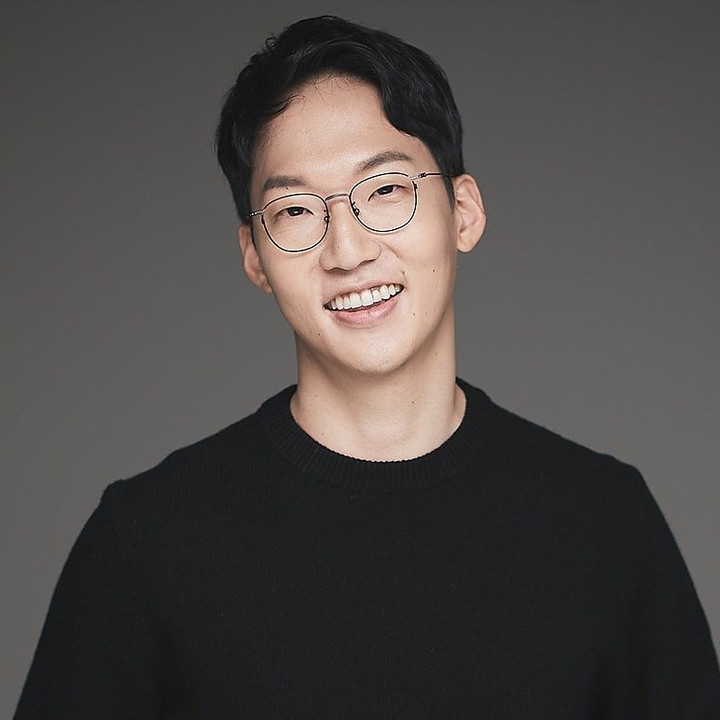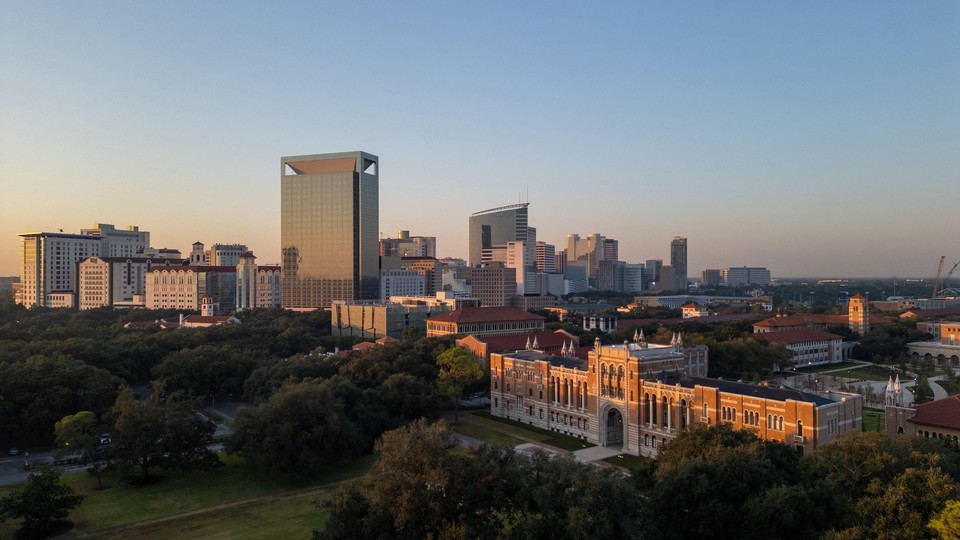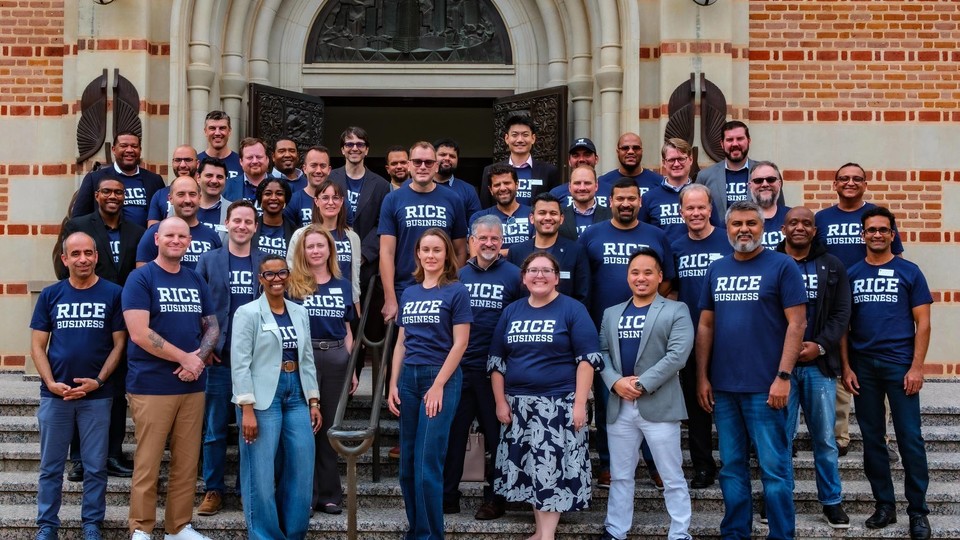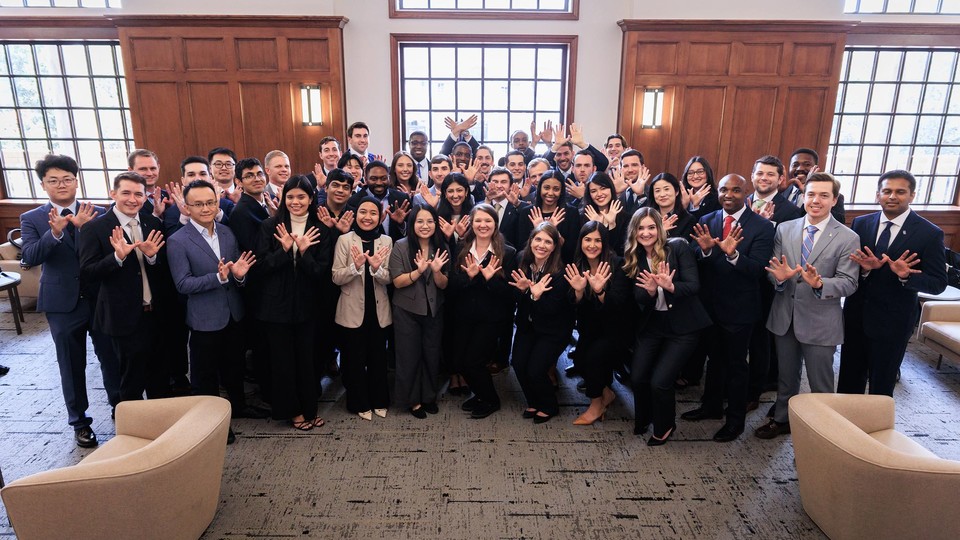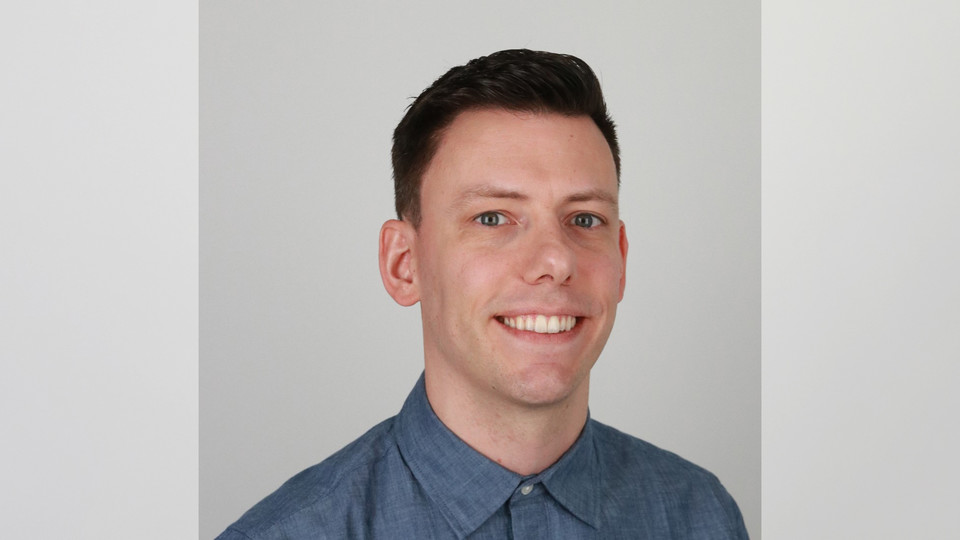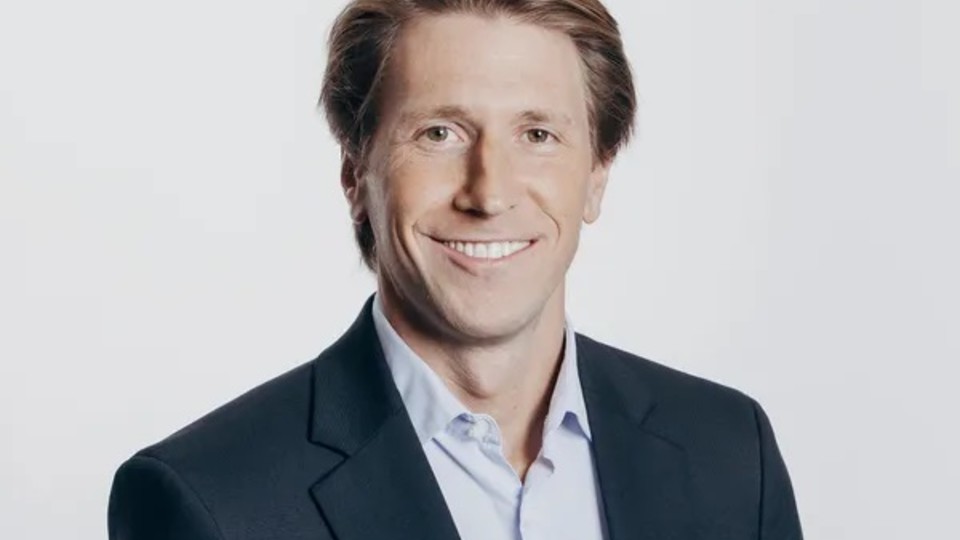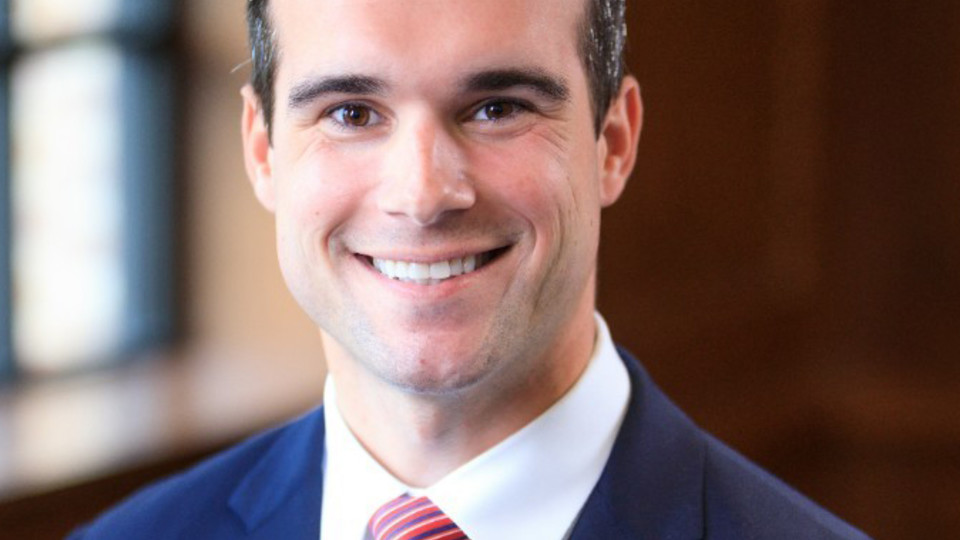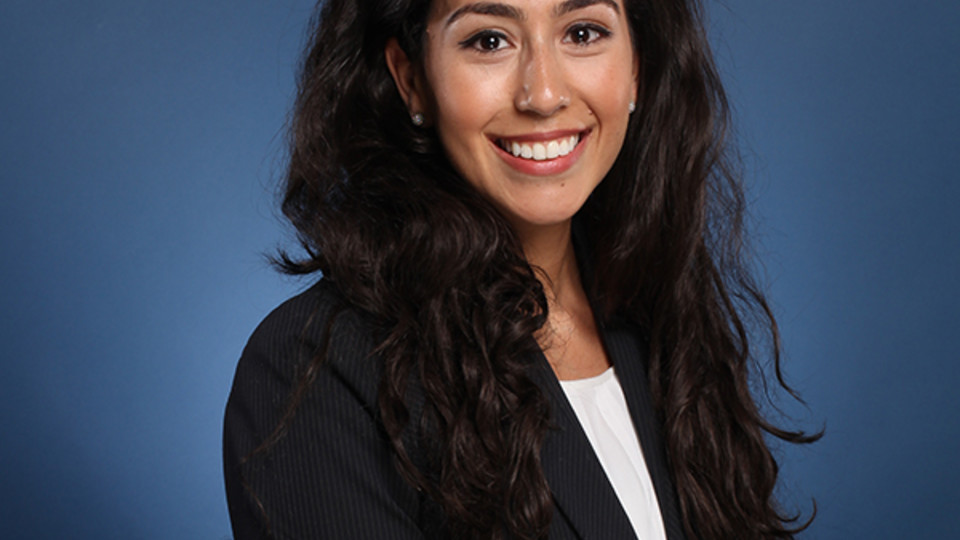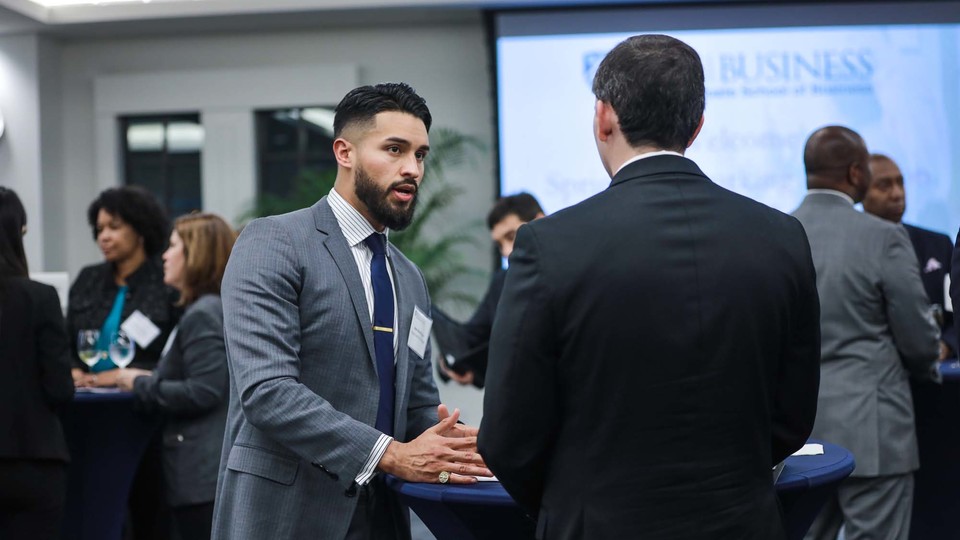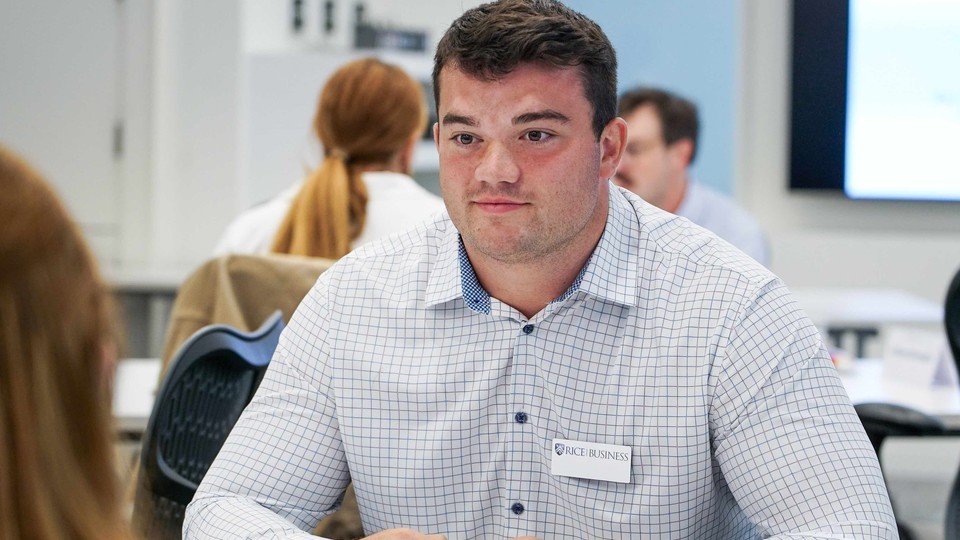When War Broke Out, This Alum Flew Straight to Ukraine feat. Radu Filip ’08
Season 3, Episode 17
Radu talks about his boots-on-the-ground efforts in Ukraine, the culture shock and challenges of being an international student, pivoting his career from IT to corporate finance and his goals for the year ahead.
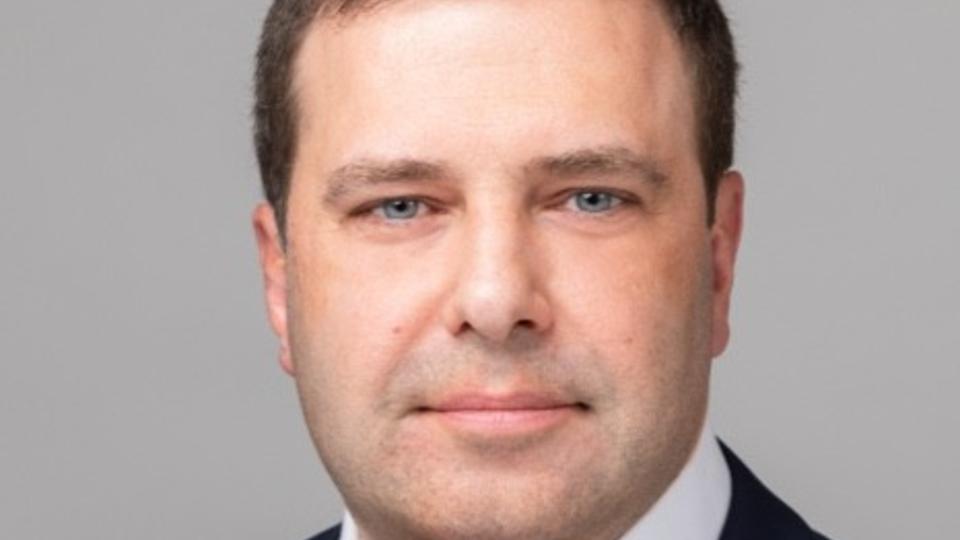
Owl Have You Know
Season 3, Episode 17
Joining Maya Pomroy in this episode is Radu Filip ’08. He is a board member of Elevate Ukraine, co-founded the Houston chapter of the Women's Masters Network, and is the Finance Director at SLB. Listen as they talk about his boots-on-the-ground efforts in Ukraine, the culture shock and challenges of being an international student, pivoting his career from IT to corporate finance, and his goals for the year ahead.
Watch
Listen
Subscribe to Owl Have You Know on Apple Podcasts, Spotify, Youtube or wherever you find your favorite podcasts.
Episode Transcript
-
[00:00]Intro: Welcome to Owl Have You Know, a podcast from Rice Business. This episode is part of our Flight Path series, where guests share their career journeys and stories of the Rice connections that got them where they are.
[00:14] Maya: On today's episode of Owl Have You Know, we talk with alumni, Radu Filip, an immigrant from Romania, who quickly found his way to Rice Business. He discusses his belief in giving back, not only to Rice, the Houston community, but also his work in aiding the war effort in Ukraine. The energy finance executive recently returned from the war zone. He tells us what he did, what he saw, and what he hopes for in the future.
Radu, thank you so much for being with us here today.
[00:43] Radu: My pleasure to be here.
[00:45] Maya: So, I was reading your bio, and there are so many incredible things to dig into with you and to discuss, that it's just, kind of, hard to start. So, you were born and raised in Romania, and you immigrated to the United States with your wife in 2005, and shortly thereafter, found your way to Rice. So, you started at Rice in 2006, right after you came to the United States. You have a BS and an MS in computer science. And you are with Schlumberger right now. You're one of the directors of finance. So, that is your professional...
[01:22] Radu: SLB, we just use the name SLB.
[01:26] Maya: Okay, perfect. So, we'll call it SLB going forward. And we won't call it oil and gas, we'll call it energy. Cool?
[01:32] Radu: Energy transition, innovation, yes.
[01:36] Maya: Yes. So, that is your professional background. One of the most fascinating things about you, though, is that, most recently, in late December of 2022, you went to Ukraine to distribute humanitarian aid to the people of Ukraine through an organization called Elevate Ukraine.
So, I would love to start with that, since that was the most recent. And, you know, I think everybody has this tug to help people, you know, that are going through very challenging and difficult circumstances. But you got on a plane and flew to the middle of a war zone. So, tell me about that.
[02:18] Radu: Well, it starts with my desire to be involved and help the Ukrainian people once this phase of the war started last year. And there are many reasons why I wanted to help. As an American, you cannot resonate with what is, basically, an independence war for Ukraine. So, you cannot resonate, because we fought an independence war many years ago against a more powerful and professional enemy. We had help back then. If you remember, Lafayette and the French who helped us. So, basically, it's the same situation if you take away the technology and the century and so forth. As a Texan, too, you resonate with that, right? You know, think of Mariupol as Alamo, right, the last 10 that bought time for the, for the army of Ukraine to defend themselves in other parts of the country.
And then, last but not the least, as a Romanian, too, because I grew up behind the Iron Curtain. My grandparents have been themselves in the Second World War, refugees from the same enemy Ukraine is fighting today, when Stalin occupied the, you know, Eastern European countries — the Baltics, half of Poland, part of Romania — as the result of his agreement with Hitler.
So, at so many levels, I resonate with the aspiration of freedom and independence of the Ukrainian people and with the uneven fight against a much bigger enemy. So, my... this is the context and my desire to help using my network. And I have many friends after so many years here in the U.S. I was introduced to this wonderful group of people in College Station that are, primarily but not limited, from one church there, A&M Church of Christ. For many years, they have been involved with mission trips in Ukraine, primarily helping orphans in Ukraine. So, they started their involvement many, many years ago, like, almost two decades ago. So, obviously, when the war started, they already had a network there of who they want to help. So, like, many other organizations here, they switched towards humanitarian aid mission. I was very fortunate to get to know them and to join them.
So, this is the context in which I joined. They formed this particular nonprofit, Elevate Ukraine, a nonprofit, specifically for the purpose of helping Ukraine. They have other humanitarian work done around the world, but this one is specifically for this situation. So, the nonprofit started in August. It was when it was formed and all that, and started to raise funds.
By the fall, we already managed to ship an air cargo of medical first-aid kits. And then, by early December, we were able to deliver our first ship container, 40-foot container, filled to the brim with medical supplies — anything from medical beds, mattresses, walkers, wheelchairs, surgery equipments, syringes, anything that a hospital would need. So, it was a good opportunity to be there for the purpose of delivering this aid. And we delivered this to Dnipro.
[05:23] Maya: My grandfather was born there. That's where he was from. So, I have a connection as well.
[05:27] Radu: I'm glad to hear that, you know, wonderful people over there. So, from there, the volunteers and the various organizations who partner with Ukraine, they further distributed this aid to various places, to hospitals in different cities — primarily, in East Ukraine.
So, that was the reason why I went there. Since I was there, the volunteers, the partners we have there, thought it would be very useful if they would show me more than just I can see in one city. So, thanks to their involvement and effort and time, I have a chance to visit quite a few cities in East Ukraine — Kharkiv, Chuhuiv. I've been to Izium, which was just liberated two months prior in the Kharkiv counteroffensive. That was the closest I've been to the front, about 20 miles. Sumy in the North, Poltava, and Kyiv.
[06:20] Maya: So, what is it like on the ground there?
[06:21] Radu: It's absolutely surreal. So, in throughout Ukraine, even in Kyiv, you can see the scars of the fighting that took place in its outskirts, even though the enemy is far away now from Kyiv. And the, and this city is close to the frontline. Like, Kharkiv is the second largest city in Ukraine, about 1.5 million people before the war. There is no one single building I have seen that doesn't have plywood in places of windows, doesn't have some, you know, facade damage. Not to mention, there are many buildings that are much, much worse destroyed.
In the same time, you know, cities like Izium that has been to the frontline, utter destruction. There is no one single building standing whole — schools, playgrounds, churches, apartment buildings, hospitals — absolutely everything destroyed. It is incredible. I mean, it's one thing to see it on TV. When you see it with your own eyes, when you see the places where people actually, unfortunately, died, it's terrifying.
Contrast to that is the attitude of the people, wonderful people, all brave in the face of this utter destruction, all with a huge fighting spirit, with a huge desire to be free, independent, and make their own decisions as a country and as a nation.
One other thing I wanted to add here, when we hear about East Ukraine and we debate here in the United States in school, at work, at university, you always hear about East Ukraine is primarily Russian-speaking, Western Ukraine is primarily Ukrainian-speaking. It makes no difference once you're there. All the volunteers I've been there are native Russian speakers. And all of them said, "Yes, my language is Russian, but my country is Ukraine. And I don't want to live in Russia, I want to live in Ukraine." So, this unity, this bravery, this fighting spirit in the people, it's absolutely amazing. And it's a huge contrast with the destruction I've seen.
[08:21] Maya: So, if people listening would want to get involved in the efforts with Elevate Ukraine, how can they get involved with this organization?
[08:31] Radu: There are multiple ways anybody who wants to help can get involved. Perhaps, the simplest way to involve is to make a donation. We have a Donate button on elevateukraine.org. I was invited to join the board of directors. So, I serve in the board of directors. Everybody there is... has a full-time job and is doing this for completely voluntary — no compensation, no benefit, no material benefit, from working here. So, I can attest that the money will go for aid. The money will go to pay for some of the shipping and the logistics of this aid that we receive... Some of this aid, we receive it as goods from other partner organizations, all right? So, then there is just the cost, like, for the case of the container, it was the cost of shipping and logistics, right?
But also, a lot of people can get involved if they help us partner with our organizations here that would like to help, but don't know how and with whom. This was my challenge in the beginning, the first two months of the war, was, I want to help out, I don't know any organization. I don't know where to go. Yes, I made some monetary donation to a charity I found in the news, but it felt like I was not doing enough.
So, those who want to involve more, please contact me directly. And if you can help us make a connection with other organizations — could be a church, could be a nonprofit, could be a private person, could be anybody — we'll be glad to talk and explore how we can partner to maximize our aid. This organization has a wide network in Ukraine in different cities. So, depending on the needs, depending what various people can help with or the organizations they know or can introduce us who can help with, we can do a lot beyond just donations.
[10:17] Maya: And what is the best way to get in touch with you?
[10:19] Radu: My email and phone number. We have... So, Elevate Ukraine... It's, you know, it's radu.filip@elevateukraine.org.
[10:25] Maya: Perfect. So, my next question is, you're married, and when you told your wife you're going to go to Ukraine in the middle of, you know, a war, what was her reaction?
[10:38] Radu: That's a very good question. Obviously, my family was worried. And not only my family. I have many good and close friends who knew about these plans, and they were all worried. My... obviously, my family and my wife, on the forefront of this. For me, I applied here principles I've learned in the business school and I have learned in the business, in the business profession, which is manage risk, mitigate risk, and minimize it. So, you can make both calculated risks. So, it was all about risk management, in the end.
The timeframe when I went, it was a timeframe when we adjust the timing. So, there was a period of less intense bombing in the cities as it was like the month before. I knew I'm going to be in good hands there, volunteers there who help, who know the right and safe places to be. We spent a lot of time on the road. And you are a bit safer when you are in the middle of nowhere than in a city. But there always was a risk. My wife understood that our desire to help, and she knew that if we can manage the risk and just, you know, live with it for a little while, it's manageable.
But your question made me think about something else, right? Think about all the families there that live with these risks day in and day out, right? I was under this risk for a couple of days. But it's amazing there how people of Ukraine learn to live with this and not be afraid anymore. I was absolutely amazed, the first air-raid alarm, when you hear those sirens starting to sound, you know, you'll feel the vibration in your bones.
[12:17] Maya: Yeah.
[12:18] Radu: I mean, it's a, it's a sound that, you know... Again, you may have heard it in the news and so forth, but when you hear it with your own ears, it's different. And most of the people were not running scared to the shelter. Most of the people said, "You know, we've been living with this every day for the last eight months." By the time I was there, it was eight months. "We're not afraid anymore. Yes, there is a risk. There is a possibility that the fate, you know, may be not good for us today, but we're not afraid." And that kind of bravery and defiance and the result, again, motivated me to say, okay, they're not afraid, I should not be afraid, either, now I'm among them and I experience what they're experiencing. And the communication back home every day was a key to let know family and close friends that I'm good, where I am, where I'm going. It was a bit tough one day when Central Kyiv was bombed and I was there in a, in a hotel. I was not impacted in any way, but the power was cut off and I could not text home for, like, about six hours that I'm safe.
[13:18] Maya: Wow.
[13:18] Radu: That, perhaps, was the most dramatic moment of this. But my family, my friends, knew that I want to help, knew about my desire, and they all supported me. I could not have done this without the support of my family and my close friends.
[13:32] Maya: So, do you have plans to go back?
[13:36] Radu: I’d like to go back if the opportunity appears and there is a good reason to go back. You know, if we can organize together another container or two of eight and if it's a good reason to be there, I would like to go back. I made new friends over there. I met wonderful people of all kinds of professions and who are all, you know, helping in this effort. It's just great to be among these people and just be with them and feel their spirit and their hopes.
[14:05] Maya: One of the things, also, is that I think that, looking ahead, and one of the other things that we learned in business school other than risk management is also strategic planning. So, if they are victorious in this war, it's going to take a whole lot of resources to build that country back up to where it was because it has been decimated.
[14:25] Radu: You're absolutely right. I mean, the amount of destruction varies by region, but is very significant in very large parts of the country. And yes, there will be so much work to do there for years to come beyond this work.
[14:40] Maya: Yes. And so, let's segue, because you had a really great one, about why you decided to go because it's what you learned in business school. So, let's travel back to Rice from Ukraine. And I would love for you to tell me, why did you choose Rice? And you certainly... is this something that you wanted to do while you were still in Romania before you set foot in the United States? Is this something that was a plan for you? Or, was this something that came to be once you immigrated here from Romania?
[15:15] Radu: Well, you know, basically, all of the above. Look, I never heard of Rice before I set foot to Houston. And perhaps, you know, all this little story, that's saying by generalizing how it applies, which says plans are useless, but planning is indispensable, right?
[15:31] Maya: Yes.
[15:32] Radu: So, going a bit further back in time, going behind the Iron Curtain, my country managed to break free when I was 14. So, I'm... I was old enough to remember.
Growing behind the Iron Curtain, I grew up with the desire of the forbidden fruit, which was the United States, the archenemy of the Eastern Bloc, right? So, I always have a desire to come to America, but it was not defined in any way. It was just a desire. And as I grew up, as I started to... after we became a free country, I started to go to high school and college, those thoughts about going to America started to articulate more and more, right? They become more defined.
I chose to work in... to get degrees in computer science. One reason is that my mom was a software developer, software engineer. So, there was a lot of family influence there being around computers before many other people in Romania could have seen a computer. But also because, at that time, in mid-'90s, IT was the only industry with global exposure. And I always have the desire to do... to see the big picture and to do things at a large scale. So, obviously, that was a natural choice for me.
And while I started my profession as an IT engineer, my thoughts developed further, and I said, okay, I want to go to work in the management of a large American global company. That was my American dream. So, obviously, to move from IT to more, let's call it master management, the MBA was the key. I immigrated to the United States as an IT engineer. I was hired by a company called 3DGeo, which was in seismic processing. This is a sub segment of the industry, very upstream oil and gas. And those geophysicists, they're trying to understand the layers of the earth. So, exploration companies know where to take the risk to drill.
[17:19] Maya: Right.
[17:19] Radu: And as soon as I set foot in Houston in October 2005, I started to look also for MBA options. At that time, Rice University just announced their evening professional program. Because I have to work full-time with this company that brought me here, so I could not be a daytime student.
[17:36] Maya: You have to learn how to juggle.
[17:38] Radu: Yes. And also, I knew from my hometown, Iași, which is a big academic city, I knew a professor, Mr. Gerry Ramey, professor of management from Eastern Oregon University, who came there as a Fulbright scholar. So, I reached out to him. I said, what's the best MBA program in Houston? He said, "Go to Rice." That's how I learned about Rice. Somehow, it worked, right? I went to the information session. I still have somewhere here in the library, the tag which is saying Radu Filip, prospective student.
[18:04] Maya: Your name tag, you still have that? That's great.
[18:06] Radu: I applied. I interviewed. Luckily, for me, I was admitted. And yes, I did my MBA two years evening, weekends, and summer while I worked for a mid-sized company in Romania.
[18:19] Maya: And then, you were also awarded the Jones Citizen Award for Excellence. And you also co-founded the Houston Chapter of Women's Masters Network. Was that at the same time while you were in... I mean, is there, like, what have you not done? Like, there's the...
[18:33] Radu: Well, again, when you, you know, you come to America, you come armed with, again, will to succeed. You realize the chances that this country can give you, if you are open and work hard and take risks and chances. So, yes, the Jones Award was for my grades. I managed to get good grades working on many project assignments, sometimes individual, sometimes with my classmates. I'm thankful for that.
The Women's Masters Network is a story into itself. So, I was serving in a student alumni committee. And I had a colleague, a lady, Tonya Olpin, from the daytime student program. At the beginning of the second year, when those student clubs have a day where they tried to recruit memberships, I stopped by her booth for Women's Masters Network. Back then, it had a different name, but let me stick with this, to say hi to her. And, you know, in the middle of few women students, MBA students, and herself, she dared me to join. And I said, "Okay."
[19:30] Maya: She dared you? That's bold.
[19:33] Radu: Yes. Yeah, she is bold. And professional women are very bold because they have so many other obstacles they have to overcome. So, I said, okay, I take the challenge, but I'll not be a figurehead just for the statistics of the organization. I'll get involved, because when I get involved somewhere, I like to make a difference. So, yes, so that's how I joined the university chapter. And then, we all graduated. Then, we co-founded the Houston chapter, together with women MBA from University of Houston and then a few other universities in Texas. And I've been involved over the years in subcommittees, committees.
There is one other caveat there. Later, I end up having three girls. I have three kids. I have three girls. So, my mission with Women's Masters Network changed, because every single bit that I can help to improve the prospects of women advancing in their career in their professional field, down the road, hopefully they will help my girls when they'll be grown up, too, so...
[20:29] Maya: It wasn't a coincidence, was it?
[20:31] Radu: Yeah.
[20:32] Maya: So, how old are your girls?
[20:33] Radu: 14, 11 and a half, and 10. So, eighth grade, sixth grade, and fourth grade.
[20:39] Maya: So, do they speak your native language? Do they speak Romanian?
[20:43] Radu: They do. In our family, we travel a lot. So, as each of them reach the age of six, so staggered, we start sending them to Europe to grandparents to spend summer with grandparents, which is important to develop their bonds. They're so lucky all the four grandparents are alive, and they can take them to trips and see around. So, we want family bond to develop. But their grandparents also don't speak English. So, when you live two months in another country, you are...
[21:11] Maya: Forced.
[21:12] Radu: And kids learn languages very fast. Yes, they are forced by circumstances to learn the language. And they are learning very fast.
And for me, it's important they speak Romanian, because, you know, Romanian... being Romanian-European is our contribution to America's melting pot. And it's my girls' heritage here, right? They're all born and raised here in Texas, but it's important to understand through family what they're contributing to all this diversity that makes America great.
[21:41] Maya: Absolutely. So, tell me about your time at Rice, because you also got involved with the Baker Institute. You really soaked in and took advantage of every opportunity during your time at the university. So, tell me about your involvement with Baker.
[21:56] Radu: Baker Institute as a building is sitting right across Jones School of Business. Proximity is important, for one thing. The second thing there is that, you know, the Rice Business school had some events hosted in the [inaudible 00:21:55] of the James Baker Institute. So, that's when I first set foot in it.
And then, I was familiar with the work that Mr. James Baker III did, the former Secretary of State, because he was instrumental in the negotiations with the Soviet Union when the Soviet Union was losing the Cold War for the reunification of Germany, and more broadly speaking, for the transition in former Eastern Europe. So, I knew of him, even from Romania, I knew of him and his contribution to this. And then, I was just... I didn't know that he has a think tank before I came here.
So, when discovering that, you know, such a prominent American statesman had a think tank and it's right across my school, it was a natural attraction. I could not not get involved. And getting involved is very flexible, right? You can choose what events you want to attend or not attend. You can choose what committees you want to serve or not to serve. And my involvement, the intensity of my involvement, evolved over the years with, you know, before I had kids, after I had kids, the stages in the school cycle of my kids, and so forth. It was not constantly the same intensity, but it's a great opportunity.
And one thing that I like about the Baker Institute a lot is that, in my opinion, it is a very intellectual, elevated, and civilized way to do... to discuss politics because you focus on policies, you don't focus on, you know, the emotional part of politics that happens through, you know, ads during the campaign or happens through memes on the internet and so forth. No. It's a much more intellectually elevated way to discuss policy instead of politics. For me, it's a natural fit to be there and be among people... like-minded people and be among these statesmen who had such a contribution to this country.
[23:56] Maya: And to many countries. He was, he was quite the statesman. Let's talk about how it is to be an international student at Rice, because even though you immigrated here and you're an American, you know, your roots and your home country, well, is Romania. But now you're an American. So, if there are international students that are considering coming to Rice, can you shed a little light on what it would be like for them and speak about the diversity that Rice offers?
[24:27] Radu: Absolutely. So, I was amazed from the beginning to discover that, just in my class, about more than a quarter of the class were international students from various continents, not as many Europeans, but there were students from everywhere — from Asia, from Latin America, from Africa. And this diversity is amazing because you discover how different life experiences and then work experiences in different cultures in the world, how they generate multiple perspectives in approaching the same problem, whether it's a business problem or organizational problem. So, I was amazed by that.
I had some expectations about American universities, in general, being very open to international students, to this diversity of opinions and experiences and perspectives. So, it was not a complete surprise. But I was still surprised and impressed seeing to what degree it manifested.
The greatest challenge that international students face are twofold. One is that, when you come here and start university right away, there are many aspects of American educational culture that you may not be familiar with. And for example, the fact that you start the first year and, immediately, the recruiting session starts for the next summer internships. You know, in America, here, we plan things so far out. But that was not a reflex for me or a way of thinking when I came here. So, you have a... It's a lot of catch-up things that American students know that normally happens in the, in the progression of the academic year that international students don't know. And you learn along the way very fast. And you have to catch up. And you have to understand. If you have a chance to do high school here, then you are a bit better prepared for those things.
Second is the cultural aspect, right? There is a cultural shock coming to America. You know, if you've traveled before or if you have been exposed to working for Americans before, again, it helps. But it is a cultural shock. And, you know, cultural shock doesn't... it's not negative or positive. It is what it is, right?
[26:38] Maya: Right.
[26:38] Radu: So, you need to be prepared for it, right? And especially in Texas, where you have to drive anywhere. So, if you don't have a car, you are having a very difficult life as a student, even to buy groceries, for example, right?
[26:49] Maya: Yeah. So, you're a bit at a disadvantage.
[26:51] Radu: I mean, I never had a car or a driving license before I came to the United States, right? So, it's this cultural shock. And the best way to mitigate the cultural shock is to bond and be open and make American friends that they can guide you very quickly and they can, you know, help you be immersed into this culture here.
And the third aspect, as an international student, is the fact that many companies, especially large companies, have a policy where they do not sponsor for work visa or for, or for a green card. And this oftentimes puts international students at a disadvantage. Now, there are, again, ways to mitigate that, right? So, university, if I understand correctly, being an elite university and there is some classification of the U.S. government, the right to work after graduation, it's as long as three years as opposed to the standard one year, right? So, that is a way this is mitigated.
But the very fact that our country does not have a formally merit-based, defined immigration system where you can apply for yourself to come here puts these students at a disadvantage. There are ways to deal with this challenge. And it's a bit unfair on the international students while we have to put our house in order. But they will face this challenge.
I was very fortunate that the company, they brought me here. And while I work with, while a student, they sponsored me for a green card. So, I owe this to them for sponsoring me. And they knew that, sponsoring me, they knew that, once I finished Rice, I'll most likely leave and work somewhere else. But it made the whole difference in the world that, when I went to interview, I could say, "Don't worry, I have the right to work here."
[28:24] Maya: Right.
[28:25] Radu: Over the years, I remain involved with the, with the Rice University and the International Student Alumni Board. Because again, I think it's important exactly what we're talking here, to share from my experience with the incoming international students and talk about exact same things we cover here in this discussion. And I always encourage them and say, "Look, it's going to be a bit harder. But, you know, where there is a will, there is a way. And the best place to show resolve and determination and succeed despite all the hardship, the best place for that is America. So... and it's interesting because I remember encouraging students, international students, during the Great Recession, which was the worst time for international students to be here.
[29:05] Maya: Right.
[29:06] Radu: Companies were not hiring anybody, not only international students and so forth. So, encouraging my, you know, my younger colleagues there was so important. And it happens that, later on, some of them, I mean, you know, Rice is a good school. Eventually, most of them made it. Some of them now serve alongside with me in this international alumni board as alumni. So, now, we advise the new students and say, "Look..." You know, for example, there is a colleague, Jesus, I know from Oceaneering. I said, "Jesus was in your situation, this very situation. And look, he made it, we made it, you'll make it, too."
[29:37] Maya: Where there's a will, there's a way, and it's worth it — three Ws.
[29:41] Radu: Yeah.
[29:41] Maya: So, you did come to Rice and you were in IT, and you transitioned into energy finance. So, tell me about that and how that came to be. And I know that you were at Cameron that was then acquired by SLB. So, tell me how you made that transition from one industry. I mean, you really pivoted your career.
[30:03] Radu: I did. And, you know, everybody's career is different. And so, in my case, the MBA was the hinge, was the pivot that allowed me to move from a pure IT field to the world of corporate finance. So, I wanted to do this pivot because, in the end, the business is run based on business performance, which is numbers — earnings per share, market share, profit margins, and so forth. So, I wanted to be in the finance world because I'm closer to where the business is run. But in reality, I never completely quit the IT field. So, I'm somewhere in the intersection of both. Just like you mentioned earlier, I am a proud naturalized Texan and American citizen, but I retained the Romanian and EU citizenship.
So, same thing in my career. I work in, let's call it broadly corporate finance. It could be finance hubs. It could be our work through corporate finance. But I have an IT background that I apply in my finance work every day. Because of my career, I started late, I could not have been an accountant, I could not have had the accounting controllership track because I didn't do my five years of audit with, like, PwC and Deloitte and those.
[31:16] Maya: Right.
[31:17] Radu: But I could apply the principles of IT operations, which is about efficiencies, process, scalability. And I can apply those principles and those, even, technologies now to the field of finance to drive efficiency in the finance world — improving the quality of our financial statement, decreasing the cost, increasing the efficiency, simplifying processes, and so forth. So, my work in corporate finance is less accounting in nature, is more around efficiencies and optimization and transformation in finance, to which I apply all the experience from the technology space.
[31:55] Maya: So, tell me, because now you're a dual citizen, as in IT and then finance, right? So, that's great, you've got dual citizenships in both.
[32:04] Radu: You're right.
[32:04] Maya: So, tell me, how do you see the energy finance space evolving, especially since we are in the midst of an energy transition? So, tell me how you see the future of energy finance, especially here in Houston.
[32:19] Radu: This is a topic that was discussed at length during the last Rice Energy Finance Summit, which is a one-day summit that takes place at the Jones School of Business every year, in the month of November. So, this topic was actually the main topic last November. We are in the middle of a finance transition, there is no question about it. Countries around the world, they invent policies towards clean energy. You have the industry, especially the auto industry, switching investments from internal combustion engine to electric. You see investments in grids, in electric charging stations. There is no doubt that there is a transition.
Now, we have to remember that this kind of transition takes a lot of time. They're not, like, flipping the fingers. Put it this way. The automobile was invented, you know, what? Very late 19th century. And by mid-20th century, you still have in various parts of the world a mix of automobile and horse-driven vehicles, right? The transition to automobile didn't happen overnight. Those two coexisted in various proportions. So, the same thing will happen with electric vehicles, which I'm focusing on electric vehicles because 70% of the hydrocarbon extracted, primarily oil, goes to fuels. So, fuel means transportation. Therefore, that's why electric vehicles are so essential to this energy mix and transition. So, the transition is happening.
Now, what is interesting in this space of renewables and new energy is that there are a lot of ideas. There are lots of technologies. It's not clear which technology is emerging. There is a lot of activity, innovations, inventions, startups who come with different approaches. So, it's a, it's a very active space from an innovation point of view. But there are no clear winners yet on, like, a mainstream type of technology or standard. And because of that, the investment profiles are very evolving, too, to the point where, you know, we don't know exactly what capital allocation model would work, what investment profile would work, what kind of expectation we should have, and so forth. So, it's all, it's all work-in-progress, if I can summarize it like this.
Now, this is the opportunity that the legacy big oil and gas companies can bring to the table in this transition, if they are smart to embrace it. And I work for a company who's very smart, and they fully embrace it.
The thing about oil exploration is very complex. And if you take out the hydrocarbon and the technology extracted, oil exploration is a lot of risk management, right? Again, in the oil exploration, you don't know which exploration's going to yield the discovery or not and how big the reservoir is versus estimating and so forth. So, the large established energy companies, they have a lot of expertise with dealing and managing the risks and the uncertainties that the transition towards clean energy entitles.
[35:20] Maya: Yeah, it's definitely going to take some time. And I agree with you that it's going to be multiple innovations and multiple ways of having energy in different types for the foreseeable future, because it is a decades-long process to switch.
[35:34] Radu: In this context of the big established energy companies now embracing this and government, so they apply all these lessons of risk management from the past in the finance function, evolves with that, right? So, I see, I see the... because you asked me about the finance function in energy, right? It's really about being at the forefront of exploring and trying to discern from this less-than-crystal-clear future, what is the best course of action? So, finance can steer a lot of these companies in the direction of, how we make clean energy profitable, how we generate revenue streams, how we manage, do we have cycles, we don't have cycles, how that looks like, and so forth.
[36:15] Maya: So, I'm wondering what goals you have for yourself for this year.
[36:18] Radu: My primary goal is to continue to grow and acquire experience at SLB with the work I'm doing. I'm taking up more responsibilities, working on significant projects and programs that advance the company's performance, that advance the company on this road towards energy innovation. So, career-wise, obviously.
The second objective I have is to continue to help and find more ways to help the people of Ukraine through the Elevate Ukraine, a nonprofit I serve into. And third is to be able to also manage to have time for my family and be around my family, be around my kids, and help them grow. Because I'm of the school of thought that you cannot outsource 100% of your kids' education and development to the school system, no matter how well the school system is funded. There is a role parents play. Review homeworks with them, talk with them, teach them things that school don't teach them, and so forth. So, I will sum up this as my few objectives for the year on the personal side.
[37:24] Maya: Do you have hopes of one or all three of your daughters of attending Rice? Because, now, they do have an undergraduate program. I'm just putting that out there.
[37:32] Radu: Obviously, I do, as a Rice Owl that I am. Since they were small, maybe since they were five to six years old, we always bring them to Rice on the, on the homecoming weekend. We always go there on a Saturday and spend the full Saturday in the campus, visiting various buildings, meeting with friends and colleagues. They were small. They were playing hide and seek inside Fondren Library.
[37:57] Maya: Oh, nice. That's... I bet there's lots of good places to hide in there, for sure.
[38:03] Radu: Absolutely, exactly. They... I always take them to my business school. We'll always find an empty classroom. And, you know, they choose a topic that they, for fun, present on the whiteboard. So, for me, as a, again, a parent and as an alumni, I expose them to the university setting. They see students — even in the weekend — studying, doing their homework. So, we planted those seeds. And they're all excited about Rice. And they always ask me, "We want to go to Rice next time," and so, forth. So, I hope that they will choose Rice one day.
[38:32] Maya: Well, I hope the same for my children as well. So, fingers crossed, on both of our behalfs. Well, Radu, it's been an absolute pleasure to talk with you today and we so appreciate your time. And again, mention one more time how people can get involved with aid to Ukraine.
[38:47] Radu: Thank you. It was a pleasure for me as well. The best way to involve is either to make a donation or to contact me. ElevateUkraine (in one word) elevateukraine.org, O-R-G.
[38:59] Maya: Okay. And I would love for you to keep us posted if you're planning another trip. Would love to circle back around with you and have you back on the program.
[39:07] Radu: Absolutely. I really appreciate that. And thank you for your time today.
[39:10] Maya: Thank you. Thank you so much.
Thanks for listening. This has been Owl Have You Know, a production of Rice Business. You can find more information about our guests, hosts, and announcements on our website, business.rice.edu. Please subscribe and leave a rating wherever you find your favorite podcasts. We'd love to hear what you think. The hosts of Owl Have You Know are myself, Maya Pomroy, and Scott Gale.
You May Also Like
Are They Doing Good Work or Just Posing?
“Social mandates” can make a company’s response seem more genuine.
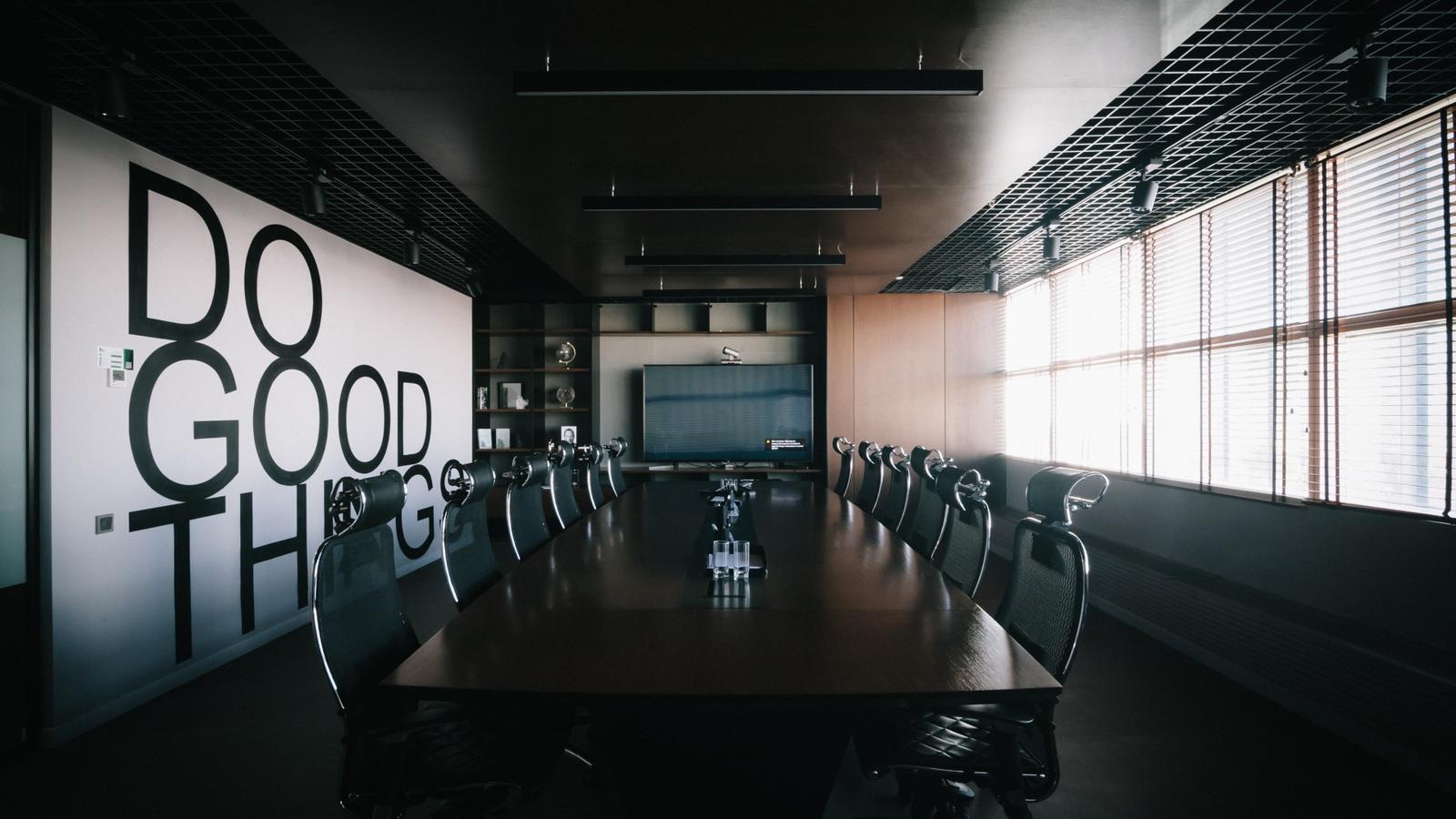
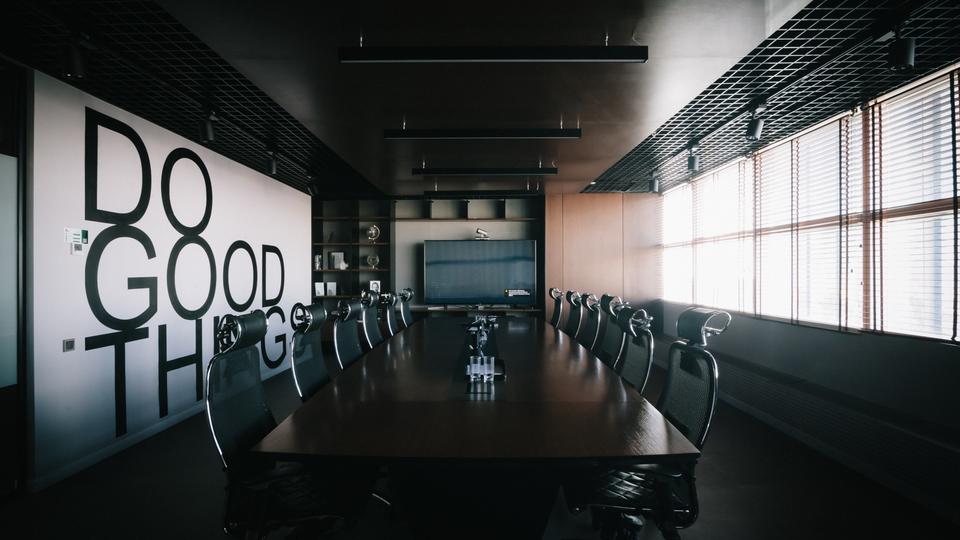
Based on research by Minjae Kim (former Rice Business professor) and Ezra W. Zuckerman Sivan (MIT Sloan)
Key findings:
- Previous research suggests that those who uphold social norms are often thought of as “model citizens.” But other examples show that they are often suspected of covering their guilt or misdeeds.
- To some, a company driven by social causes can appear genuinely pro-social. To others, the company may appear to be posturing (e.g., “greenwashing” or “pinkwashing”). Understanding this duality of consumer perception is critical to the world of business.
- The key difference is that “social mandates” (i.e., whether or not one is prompted to respond to some incident) within the context can make responses from companies and CEOs appear more genuine.
It is becoming more and more common for companies to promote social causes such as human rights, LGBTQ+ rights, racial justice and environmental sustainability.
But organizations face a tricky dilemma when expressing commitments to helping address social issues: Stakeholders may interpret their words and deeds as shallow rhetoric or insincere posturing. Terms like “greenwashing” or “pinkwashing” are on the rise, and they signal heightened suspicions around companies doing something with ostensible objectives of bringing in positive social change.
It's critical for researchers and business leaders to investigate this duality of audience perception: actual virtue versus virtue-signaling. In an age of social media and polarization, consumers are increasingly likely to wonder: Does this company have ulterior motives? Are they trying to cover for their own wrongdoing? Are they actually walking the walk, or are they merely talking the talk?
When can companies avoid such suspicion of being pro-social imposters?
Minjae Kim of Rice Business and Ezra W. Zuckerman Sivan of MIT Sloan School of Management have taken a close look at the conditions under which upholding social norms will make firms appear to be “model citizens” and when it will make them seem like imposters.
Their theory is two-fold: First, those who follow through and do social good in response to an explicit “social mandate” are viewed as “model citizens.” Second, those who go out of their way to do social good without any prompts or social mandates are less likely to be trusted and will be widely viewed as imposters.
Think about the following situation. A “social mandate” is given to a politician when they are asked in an interview what they think about a particular cause. In that context, if they express support, audiences are less likely to suspect the politician of having ulterior motives or pandering to constituents. After all, if the politician does not express support in that situation, that is tantamount to expressing disapproval. Here, the interview question (i.e., “social mandate”) provides a cover of plausible deniability to any suspicions of ulterior motives. Law enforcement (e.g., police, prosecutors) often have this social mandate built into their professions.
But if the politician takes initiative — unprompted — to support the same cause, they will more likely be viewed with suspicion. They may instead appear to seek out social rewards associated with supporting the cause (e.g., good reputation), without the cover of plausible deniability.
To test their theory, Kim and Zuckerman launched a series of experiments involving 509 online participants based in the United States. The experiments sought to determine how respondents perceive individuals who encourage others to abide by social norms. Participants were specifically asked to identify which of two individuals they think are “model citizens” committed to the norm, or “imposters” who are uncommitted but trying to hide their own deviance.
The researchers found that people who encourage others to abide by social norms when prompted (“social mandate”) are perceived as “model citizens,” while those who do the same but without such prompts are more likely to appear as “imposters.” This duality provides a clear guideline for managers engaging in corporate social responsibility: When suspicions are rampant, launching pro-social campaigns without a plausible mandate may heighten suspicion regarding motives.
The larger question is how to build firms and societies where people can safely support norms (that we all support) without being suspected as imposters. After all, we want our own norms and moral principles to govern our lives. But in some situations, we may mistakenly vilify those who are trying to do good, based on the absence of some contextual “social mandate.”
Kim and Zuckerman Sivan (2017). “Faking It Is Hard to Do: Entrepreneurial Norm Enforcement and Suspicions of Deviance,” Sociological Science.
Never Miss A Story
You May Also Like
Keep Exploring
What’s the ROI for a One-Year vs. a Two-Year MBA?
In the long run, two-year MBAs have a higher ROI.
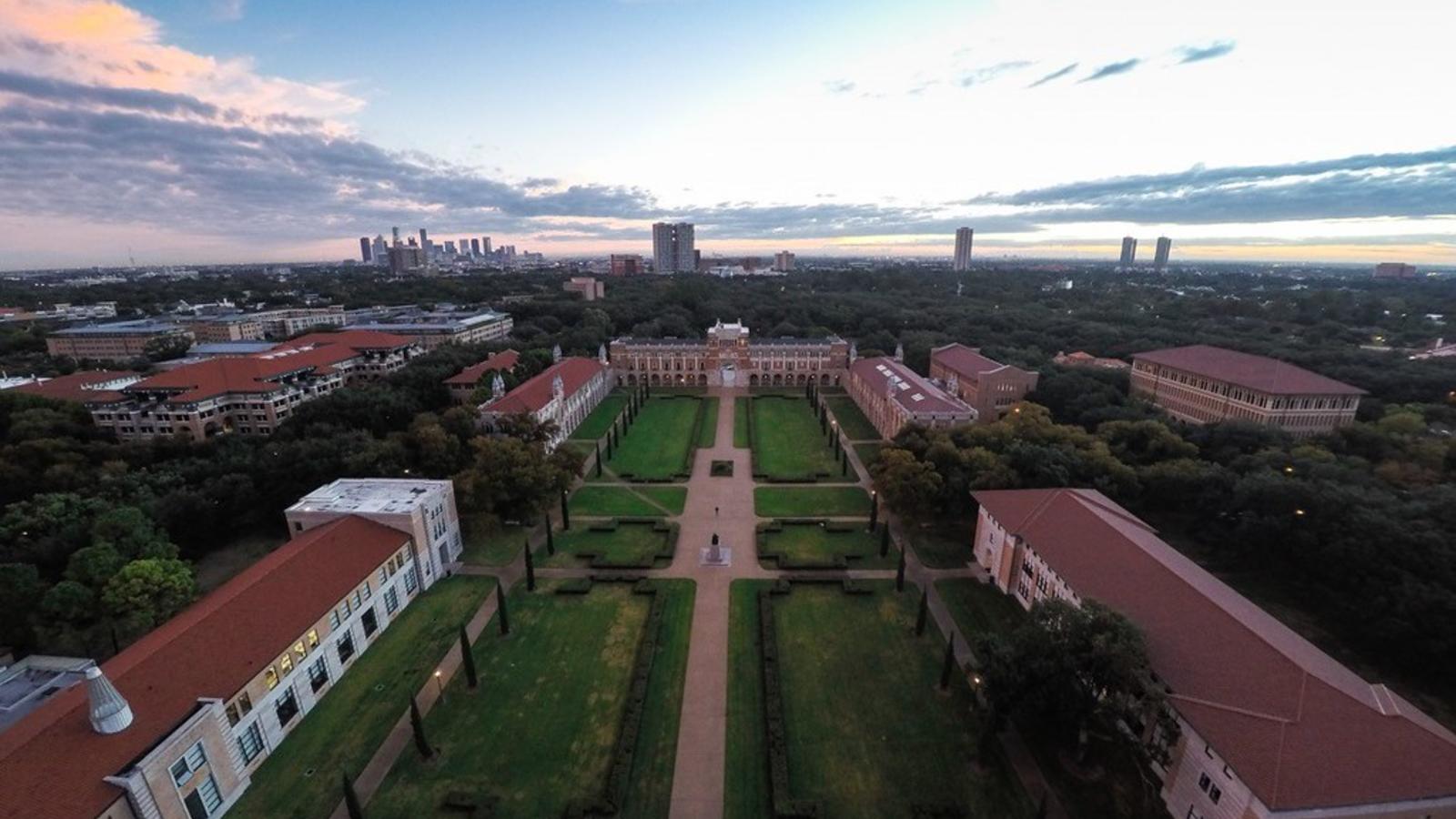
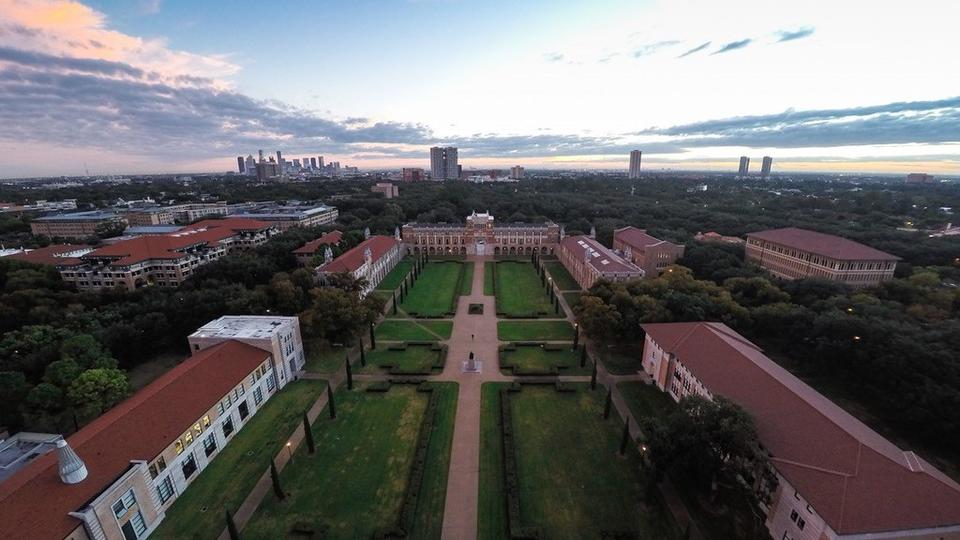
In the long run, two-year MBAs have a higher ROI
One-year MBA programs are an exciting proposition. They offer a way to fast-track your education and enter the workforce quickly. Compared to the traditional two-year MBA, they have lower costs and shorter time commitments.
But graduates of two-year programs experience a return on investment over their lifetime that the one-year model simply cannot match. Below are some of the key reasons for choosing a two-year over a one-year MBA.
You gain a stronger network.
As all MBA students know, networking is crucial to career advancement. Networking during your program helps you explore industries and careers, get involved with campus and community organizations, and connect with alumni, faculty and students.
One-year MBA students do not have much time for networking and relationship building. They jump right away into the full-time job search while cramming their coursework into a single year. Because of the limited time frame, one-year students have less time to attend events, meet faculty and alumni, and participate in extracurricular activities than their two-year peers. As a result, it’s harder for them to create genuine, sustainable connections and explore as many career paths as two-year MBA students.
Choosing a two-year program will give you more time to join and lead clubs, attend career fairs, and organize events. You should treat these experiences as critical networking opportunities. The broader your network, the more potential connections, resources and opportunities you can access for years to come.
You build a more solid foundation.
While one-year programs can provide an excellent overview of business concepts and practices, two-year MBA students earn a more thorough and well-rounded foundation.
In a two-year program, you become more conversant in a broader range of topics and gain more experience in business fundamentals. You also have more time to enhance essential “soft skills,” like leadership and communication, which potential employers prioritize.
More time to learn, study, absorb, explore and apply classroom concepts puts you in a better position for a wider range of job opportunities.
You have more applied experience.
Internships and experiential projects are an essential part of the MBA experience. They give students the ability to solve complex challenges right out of graduation and show they can apply the skills that recruiters prioritize.
For example, a student who completes a two-year MBA with a focus on finance can take more finance courses, complete a finance-related internship, and work on real-world finance-related projects. For some industries, such as investment banking, internships are particularly important. A one-year MBA program is unlikely to provide that critical experience.
Not only does a two-year program give you more time to acquire classroom knowledge, it also gives you room to pursue opportunities like non-profit board fellowships and participate in action learning projects. Putting classroom knowledge into practice provides a chance to establish yourself as a leader and effective communicator in your areas of specialization.
You’ll attract more employers.
Some employers may view a one-year MBA as a valid credential, but many prefer candidates with a more extensive business education, especially in fields like consulting and investment banking, which require a deep understanding of complex financial and strategic concepts.
Recruiters pay closer attention to top two-year graduates because they come away with more networking experience, a deeper understanding of fundamentals, and a wider range of specialized skills. With more time for fellowships, mentorship, coaching and research opportunities, you’ll gain a stronger resume and more extensive access to alumni networks and recruiting pipelines.
In short, you’ll experience a higher lifelong ROI.
In many cases, one-year programs are a more time-efficient option, and students tend to take on less debt than two-year students. (That said, top-tier MBA programs like Rice Business typically offer two-year students scholarships and financial aid.)
The decision to pursue either a one- or two-year MBA ultimately depends on your specific career goals and financial situation. It’s important to consider the limitations and benefits of each program type and determine which aligns better with your long-term personal and professional objectives.
Interested in Rice Business?
| One-Year | Two-Year | |
|---|---|---|
| ROI | Lower tuition fees and living expenses, but uncertain starting salary and growth | Higher ROI given high starting salaries, scholarships and aid |
| Time | Shorter time commitment, faster entry into job market | More time to develop skills and knowledge |
| Networking | Limited time for networking and building relationships | More time for building strong network |
| Job Opportunities | Many employers prefer candidates with more extensive business education | Graduates prepared for wider range of job opportunities |
| Specialized Coursework | Limited time for specialized coursework | More time to tailor program to career goals |
| Hands-on Experience | Limited to no time for internships and experiential learning | More time to participate in internships and experiential learning |
| Comprehensive Education | Limited time to learn and absorb material | Deeper understanding of business concepts and strategies |
You May Also Like
Keep Exploring
Want more good ideas from your workers? Try giving them a reward – and a choice
A recent study co-authored by Rice Business Professor Jing Zhou found that offering workers a choice of what type of reward they would like for offering good suggestions increased the volume of submissions and their creativity too.
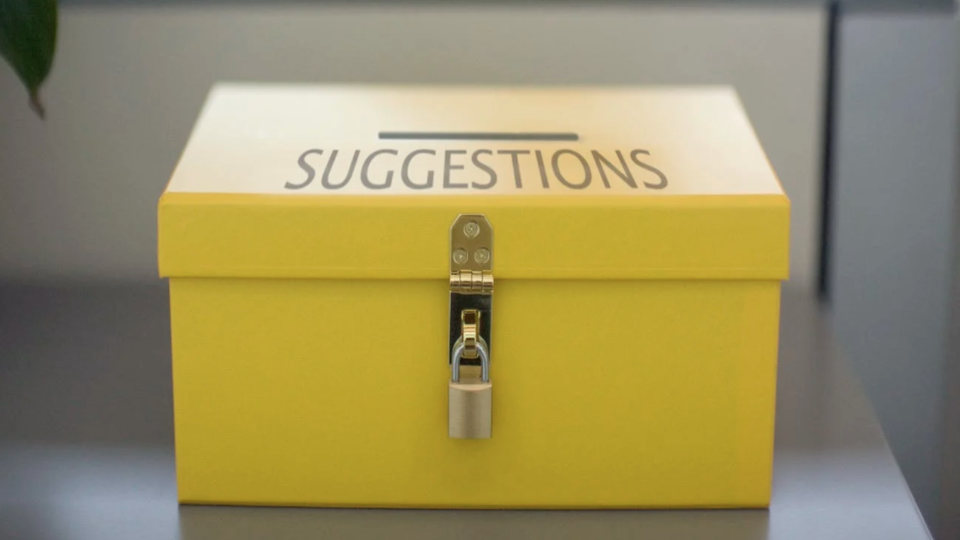
Magnetic gear tech company wins 2023 Rice Business Plan Competition
FluxWorks from Texas A&M University, a magnetic gear technology company, took home the grand prize at the 2023 Rice Business Plan Competition (RBPC). The winners were announced at the conclusion of the three-day pitching, mentoring and networking event.
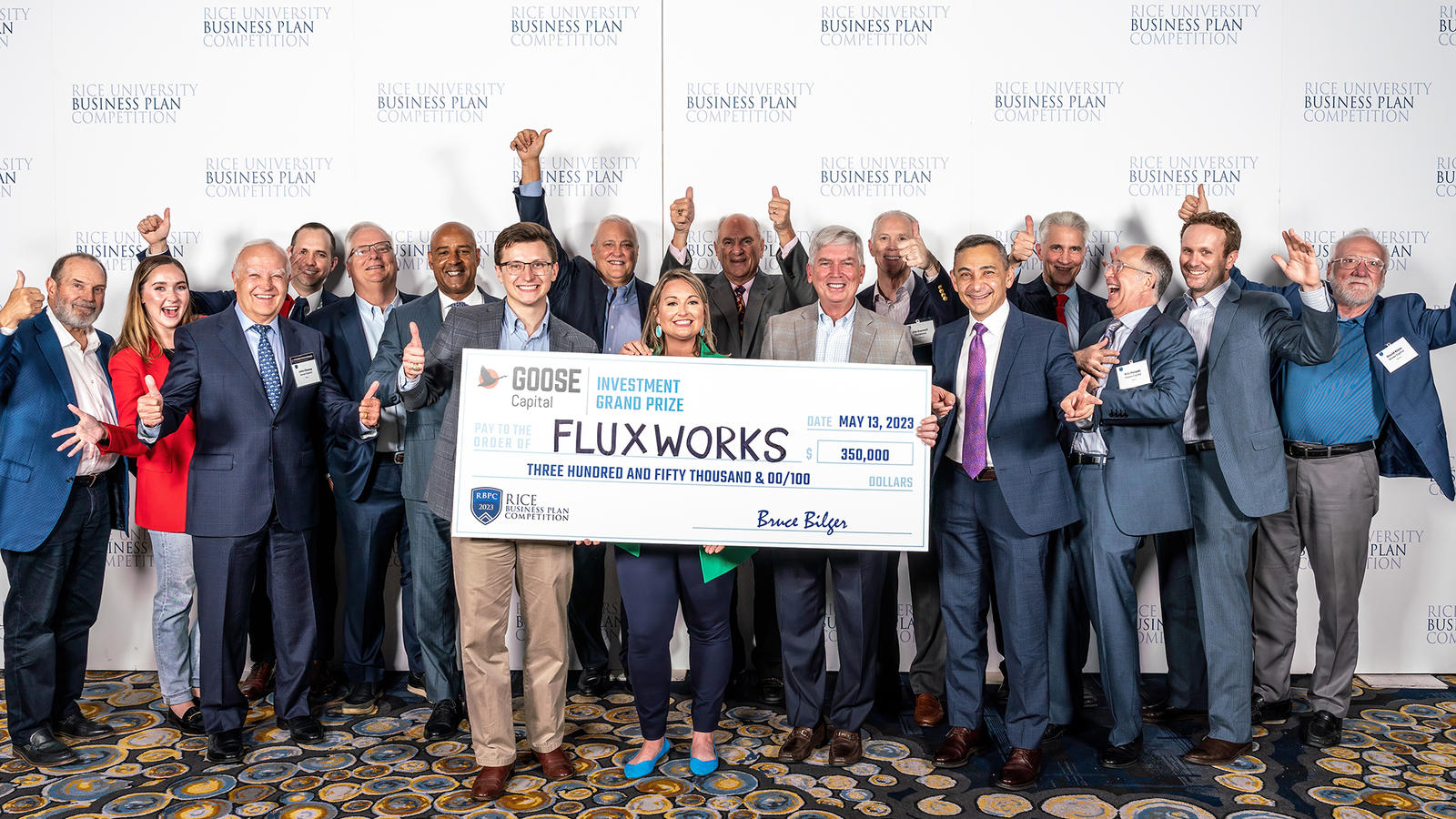
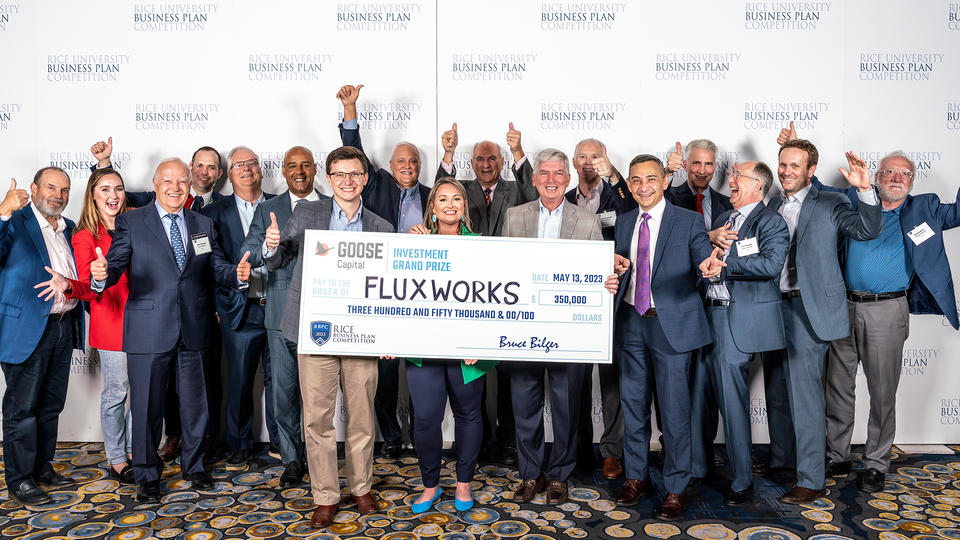
FluxWorks from Texas A&M University, a magnetic gear technology company, took home the grand prize at the 2023 Rice Business Plan Competition (RBPC).
The RBPC, hosted annually by the Rice Alliance for Technology and Entrepreneurship and Rice University’s Jones Graduate School of Business, is the world’s largest and richest student startup competition. This year’s edition saw 42 startups competing for $3.4 million in prizes – the highest in the 23 years of the event. More than 80 prizes were awarded and every team took home cash.
The winners were announced at the conclusion of the three-day pitching, mentoring and networking event, which included an elevator pitch competition, practice round, semifinals, wildcard and final round. The innovations presented led sponsor companies to add a number of cash prizes at the last minute.
"Judges told us that the quality of the startups at this year’s competition was the best ever,” said Catherine Santamaria, director of the RBPC, “One judge went so far as to say that every startup this year was worthy of investment.”
The 42 startups represented 35 universities from five countries. They were chosen from more than 450 applicants to compete in one of five categories: energy, clean tech and sustainability; life sciences and health care solutions; consumer products and services; hard tech; and digital enterprise. Learn more about the startups here.
The RBPC’s more than 350 judges act as — and most are — early-stage investors evaluating the startups’ potential. Teams pitch their businesses to investors, entrepreneurs, corporate executives and ecosystem partners during the event, then network and receive real-time feedback, advice and mentorship.
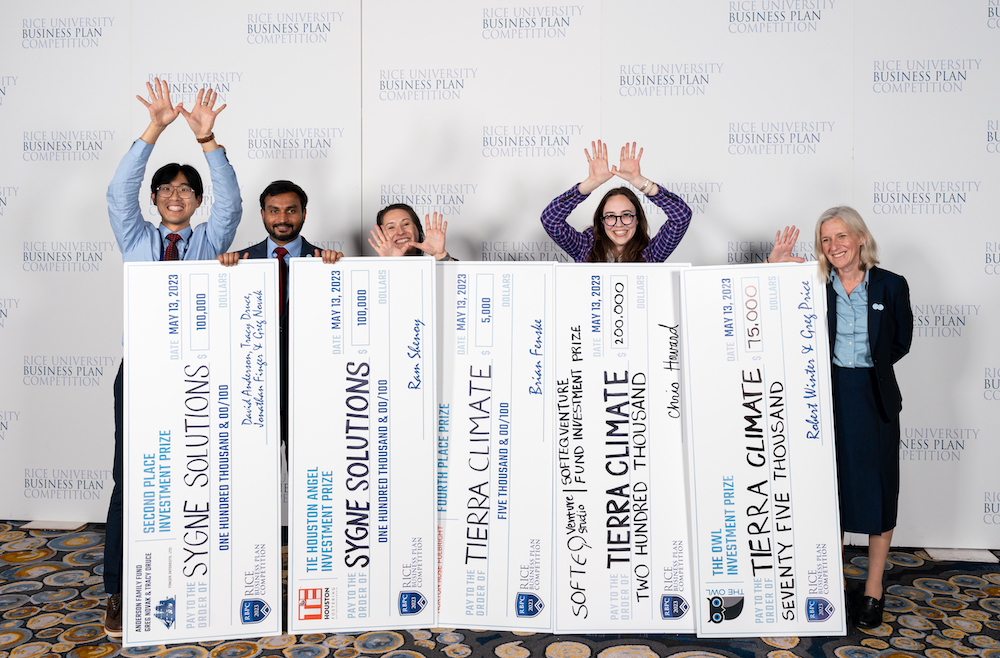
The seven finalists based on the judges’ overall scores were:
- FluxWorks, Texas A&M University — $350,000 GOOSE Capital Investment Grand Prize.
FluxWorks’ magnetic gears are four times quieter than standard with 99% efficiency and can offer unprecedented reliability from outer space to under the sea and even inside the human body.
- Sygne Solutions, Rice University — second place and the $100,000 Investment
Prize, sponsored by David Anderson, Jon Finger, Anderson Family Fund, Finger Interests, Greg Novak and Tracy Druce.
Sygne Solutions is a scalable and sustainable solution for eliminating a group of chemicals known as PFAS in water through patent-pending technology.
- Zaymo, Brigham Young University — third place and the $50,000 Investment Prize, sponsored by David Anderson, Jon Finger, Anderson Family Fund, Finger Interests, Greg Novak and Tracy Druce.
Zaymo is a tool for e-commerce brands that embeds the shopping experience within customers’ email.
- Tierra Climate, Rice University — fourth place and the Norton Rose Fulbright $5,000 Prize.
Tierra Climate is a marketplace for selling verified carbon offsets to corporate buyers, boosting their revenues by as much as 20%-30% and boosting efforts to achieve net-zero emissions.
- Atma Leather, Yale University — $5,000 EY Fifth-Place Cash Prize.
Atma Leather is a material innovation company developing plant-based leather from banana stems and other crop waste, making it a cruelty-free and sustainable alternative.
- Boston Quantum, Massachusetts Institute of Technology — $5,000 Chevron Technology Ventures Sixth-Place Cash Prize.
Boston Quantum aims to disrupt the financial industry with enterprise quantum computing software.
- Pathways, Harvard University — $5,000 Shell Ventures Seventh-Place Cash Prize.
Pathways is building a full-stack sustainability platform for the construction industry.
Significant prizes this year and the teams that won them include:
- $300,000 OWL Investment Prize — Boston Quantum, Massachusetts Institute of Technology.
- $200,000 OWL Investment Prize — Zaymo, Brigham Young University.
- $75,000 OWL Investment Prizes — Atma Leather, Yale University; Tierra Climate, Rice University.
- $100,000 TiE Houston Angels Investment Prize — Sygne Solutions, Rice University.
- $100,000 Houston Angel Network Investment Prize — Zaymo, Brigham Young University.
- $500,000 Softeq Venture Fund Prize — Zaymo, Brigham Young University.
- $300,000 Softeq Venture Fund Prize — Skali, Northwestern University.
- $200,000 Softeq Venture Fund Prize — Tierra Climate, Rice University.
- $125,000 Softeq Venture Fund Prizes (3 prizes) — Boston Quantum, Massachusetts Institute of Technology; BlueVerse, Texas Tech University; Thryft Ship, University of Georgia.
- $250,000 TMC Innovation Healthcare Investment Prize — AirSeal, Washington University in St. Louis.
- $25,000 Urban Capital Network Diversity Investment Prize in partnership with South Loop Ventures — Boston Quantum, Massachusetts Institute of Technology.
- $25,000 New Climate Ventures Sustainability Investment Prize — Active Surfaces, Massachusetts Institute of Technology.
- $50,000 nCourage Investment Group’s Courageous Women Entrepreneurs Investment Prize — Atma Leather, Yale University.
- $10,000 nCourage Investment Group’s Courageous Women Entrepreneurs Investment Prize — Thryft Ship, University of Georgia.
- $30,000 Pearland Economic Development Corporation Spirit of Entrepreneurship Prize — MyLUA Health, Cornell University.
- $20,000 Novak Druce Carroll Investment Prizes (3 prizes)— Blue Verse, Texas Tech University; Biome Future, University of Florida; Zaymo, Brigham Young University.
- $25,000 Southwest National Pediatric Device Consortium Prizes (2 prizes) — MiraHeart, Johns Hopkins University; Integrated Molecular Innovations, Michigan Technological University.
- 15,000 Eagle Investors Prize – Zaymo, Brigham Young University.
- 10,000 NABACO RBPC Alumni Network Prize – Citrimer, University of Michigan.
For more information about the 2023 Rice Business Plan Competition, visit rbpc.rice.edu.
You May Also Like

Rice University’s Jesse H. Jones Graduate School of Business today announced the launch of its Graduate Certificate in Healthcare Management program, a 10-month, credit-bearing professional credential designed for current and aspiring leaders seeking deep expertise in the business of healthcare.
Best & Brightest Online MBAs: Class Of 2023
At the Hess Corporation, Trent Kostenuk '23 oversaw the launch of a joint venture with Exxon Mobil and the China National Offshore Oil Corporation. “My contributions to this project gained me high visibility within the organization and positioned me as the go-to person for technical expertise and guidance for the G&G team and leadership.”
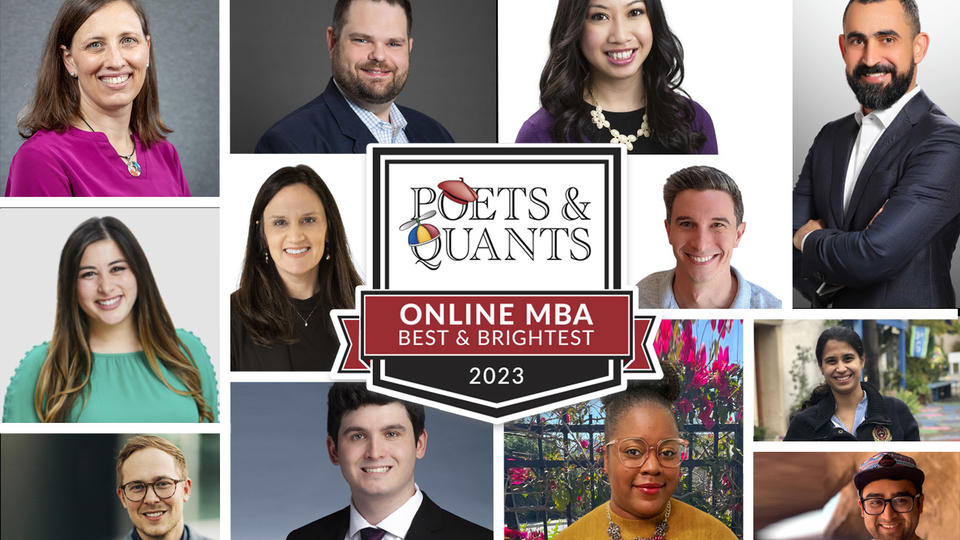
How to recruit with softer skills in mind
Rice Business Professor Siyu Yu and her team found that people who accurately gauge team influencers possess “status acuity,” a skill that can reduce group conflict and improve team performance.

A Former Fourth-Grade Teacher Is Working To Ease Your Migraines feat. Jillian Levovitz Fink ’17
Season 3, Episode 16
Jillian shares her story of pivoting from elementary education to co-founding and leading a medical device startup company. She talks about her unconventional path, her advice to those considering a pivot in entrepreneurship, and how she invests her time in giving back to the community.
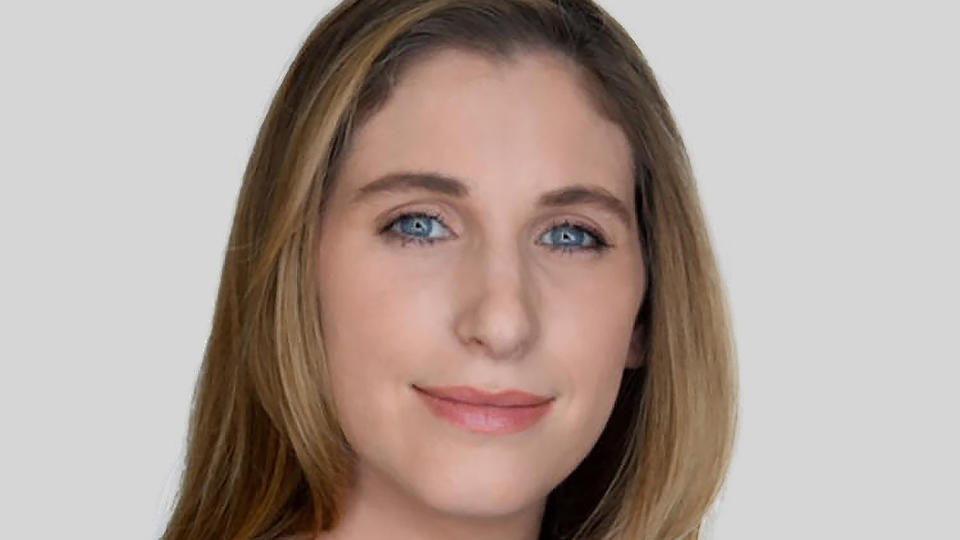
Owl Have You Know
Season 3, Episode 16
Jillian is a healthcare entrepreneur, CEO of OcciGuide and chief strategy officer for FemHealth Insights. She and host Maya Pomroy ’22 discuss her story of switching from elementary education to co-founding and leading a medical device startup. She talks about her unconventional path, advice to those considering a pivot in entrepreneurship, and how she invests her time in giving back to the community.
Subscribe to Owl Have You Know on Apple Podcasts, Spotify, Youtube or wherever you find your favorite podcasts.
Episode Transcript
-
[00:00] Intro: Welcome to Owl Have You Know, a podcast from Rice Business. This episode is part of our Pivot series, where guests share stories of transformation in their lives and careers.
[00:14] Maya: Today's guest on Owl Have You Know is Jillian Fink, Full-Time MBA of 2017. The healthcare entrepreneur shares her story of pivoting from elementary education to co-founding and leading a medical device startup company. She talks about her unconventional path, her advice to those considering a pivot in entrepreneurship, and also, how she invests her time in giving back to the community.
Jillian Fink, Full-Time MBA of 2017, is our guest today on Owl Have You Know. Jillian, thank you so much for taking the time to talk with us today.
[00:48] Jillian: It's really a pleasure to be here. I'm happy to have this chat.
[00:51] Maya: So, Jillian, you are the CEO and co-founder of a medical device startup called OcciGuide, which is a market-disrupting innovation that guides complex injections for treating headaches, specifically migraines, which are alternatives to opioids and other medications for pain control. You also just took on a new role as Chief Strategy Officer for FemHealth Insights, which is also very, very exciting. Honestly, looking through your bio, you have definitely done quite a bit before your time at Rice, during your time at Rice, and after graduation. And I want to get to all of these incredible things that you're doing in the healthcare space. But, first, let's talk about your undergraduate degree in elementary education. You went to Boston University. And you were a fourth-grade teacher.
[01:44] Jillian: Correct.
[01:45] Maya: So, quite the arc from teacher to CEO of incredible startups. So, tell me about your journey.
[01:53] Jillian: Yes. So, when I was younger, I loved working with kids and teaching. So, that was what I did in my undergrad. I actually worked for a nonprofit for two years when I first graduated, but I was very excited to get that classroom experience in, and really enjoyed it. And I would say that there's a lot of overlap between being a classroom teacher and being CEO, a lot of planning that goes into lesson plans in your day, and then a lot of people management.
[02:20] Maya: Littler people, right? A little, a little shorter.
[02:26] Jillian: They're definitely shorter, but sometimes their personalities are not smaller.
[02:31] Maya: For sure. I actually have a fifth grader, so I know what you're saying. You're speaking my language.
[02:36] Jillian: So, yeah. And then, I ended up working in a healthcare clinic. My husband actually started a clinic when I was pregnant with our second son, and I really was just helping him get set up with the office, finding a lease, helping get equipment set up, first hires, and whatnot. And it really just grew into a full-time position of managing what ended up being a multi-site clinic out in California. And then, we moved down to Houston, and I had an opportunity to, kind of, reassess what I was doing with my life. We were not far from Rice's campus. And I said, you know, maybe I'll go back to school. And actually, instead of learning from my own mistakes, I can learn from other people's mistakes.
[03:19] Maya: Perfect. Or learn... you know, actually, you learn more from your failures, is what I learned when I... during my time at Rice than you do from your successes. So...
[03:27] Jillian: Absolutely. And I love those case reviews because you get to learn about other failures, just gives you a much more complete picture of what's out there, different opportunities, different types of companies, and different types of challenges that you might face in other types of industries and whatnot. So, it's a lot of fun.
[03:44] Maya: So, that clinic that your, that your husband opened, it was a pain management clinic, right? There were multi-sites.
[03:49] Jillian: Yeah.
[03:50] Maya: So, was he really the one, the catalyst that got you interested in the healthcare space?
[03:55] Jillian: Yes, absolutely. I would never be here if it weren't for that, no doubt. And there, every now and then, I'm like, healthcare's very complicated. There's a lot of regulatory requirements to deal with, a lot of quality systems that you wouldn't necessarily have to consider, working in a different industry. So, it definitely has its unique challenges, which have been fun and frustrating to learn about all at the same time.
[04:19] Maya: Well, like the FDA, right? We'll talk about that in a minute.
[04:22] Jillian: Yeah.
[04:23] Maya: The FDA and getting approval is definitely quite a hurdle to overcome, especially, with new organizations and the new medical device startups. So, tell me about OcciGuide because, like I mentioned, I have a fifth grader and I also have an older daughter, who's a ninth grader, and she has definitely struggled with migraines. And what I've learned by researching you is that migraines disproportionately affect women more than men.
[04:48] Jillian: Yes.
[04:49] Maya: Is that a hormonal reason? Or, what's the research on that?
[04:53] Jillian: So, I'm going to first say they don't know. There are great answers. I think that hormones play an enormous role. And one of the proofs for that is that, actually, headache predominantly impacts women in their reproductive years. So, when they're going through those hormone surges that you see a huge increase in prevalence of headache, and then, also, pregnant women, you see an impact on headache prevalence. Birth control can have an impact on headache prevalence, and menopause can have an impact on headache prevalence.
So, all of those times in a woman's life when her hormones might be escalated or be reduced all have an impact on headache. And then, you have case studies of women who report that, you know, "I know every month, like clockwork, I'm going to have a migraine on this day. And I can plan it. I know it's coming." And there's nothing they can do about it because there just aren't great abortive or preventive treatments out there.
[05:45] Maya: So, tell me about OcciGuide and what it does to really better the quality of life of people that have to suffer through this.
[05:52] Jillian: Yeah. So, we're really excited about the product. It... basically, there's a procedure that's called an occipital nerve block. And it uses just numbing medication that's injected along the pathway of the nerves to the back of the head. And it's similar to going to the dentist, and they numb your mouth and you just don't feel pain anymore. So, it is very effective in shutting off that pain signal to the back of the head.
Unfortunately, this procedure is really only done by specialists who don't actually treat headache patients unless they've, kind of, tried everything else, it's failed. And then, they might end up with one of those headache specialists or pain management physician. And what the device does is it actually uses the anatomical relationships between the boney landmarks and the nerves in the back of the head to actually identify the location of the nerves. So, any provider, nurse practitioner, or physician assistant can administer this procedure in any care setting. You know, this is alternative to medications that have a lot of side effects, a lot of sedating medications, a lot of medications that cause nausea. So, very often, women have a headache, and the cure is almost as bad as the disease. And you have over 50% of headache patients report that they actually avoid medications because of that impact on work or school.
[07:07] Maya: There's a lot of side effects with all of the different... I mean, I know from experience and watching that, sometimes, it's just like, "You know what? I don't, I don't want to take that pill because it's going to wipe me out for the rest of the day."
[07:17] Jillian: Yeah, exactly. So, especially, patients who end up in the emergency room for headache treatments, they're basically given Benadryl, very high doses of Benadryl —
[07:27] Maya: Wow.
[07:27] Jillian: ... and knocked out and sent home to sleep it off, versus with this treatment, there are really virtually no side effects. And there are really no counter-indications, either.
[07:34] Maya: So, is this, obviously, with your husband and his background in the healthcare space. Tell me about your journey to Rice. So, you moved to Houston from California and, probably, learned that it's one of the best, if not the best, entrepreneurial business schools in the country. So, was that the draw? Was entrepreneurship something that was tugging away at you, and you're like, "You know what? That's where I need to go?"
[07:57] Jillian: So, the truth is, and I never told this before, but...
[08:01] Maya: Oh, good. I'm glad you're telling me now. This is great.
[08:05] Jillian: Our secret. We lived in Houston, and I have four kids. My fourth was actually born right after we got to Houston. They were all in school. My husband was on staff at one of the hospitals and whatnot, and we were not moving. So, I only applied to Rice. It was Rice or I wasn't getting my MBA. And thankfully, I got in.
[08:25] Maya: Well, I mean, and lucky you did, lucky for Rice you did, because I mean, your accomplishments are very large, long, and broad. I mean, this is phenomenal, what you've done. So, you started in 2015, and you wanted to focus on entrepreneurship. And was OcciGuide something that was already on the horizon for you? Or, is this something that developed while you were in school?
[08:49] Jillian: It was, kind of, very, very, very early we'd been just talking about the potential for it. And then, there were actually some of our professors at Rice, or my professors at Rice, who thought it was interesting. And there's a tech entrepreneurship class, or was when I was there, that we got to, kind of, run it through the class and do some of that really early market research, Lean Canvas development, or whatnot. I got to work with my classmates on it, which was great because I had so many really, really smart classmates, and all of their contributions were just so fun and helpful, to be able to partner with them. And then it, kind of, grew from there.
[09:26] Maya: So, tell me about the growth. So, you started in a class with an idea, which the best ones, that's how you start, and you lean on your classmates, on your team, to develop it. So, walk me through how you got from, you know, initial ideation to this product that was approved by the FDA.
[09:48] Jillian: Yeah. So, we started just doing that market research. We knew that headache was a big problem, in general; but also, in the emergency room, there were 5 million visits to the emergency room with a primary complaint of headache every year. So, that just seemed a really interesting place to start because they just don't have great treatment options for those patients in that care setting. And so, we built out our possible customers. We did a lot of customer interviews, got a sense of what kind of attributes they would want to see in a device that they use in the ER, and then work with manufacturers to build the prototype.
And we're lucky enough to get a partnership with Houston Methodist, actually, to test it out. And they used it in one of their ERs. And we got just great data back. We showed a 20% improvement in throughput out of the ER, which is huge for ER metrics. And we also showed almost double the reduction in pain score, pain scores for patients that were treated with the device. And for women who were treated with the device, they had tripled the pain score reduction, compared to the traditional treatment methods. And again, that's without all the associated side effects.
So, from there, we went ahead and listed it with the FDA. We got great feedback from a lot of FDA consultants that we could be a Class I device. And the FDA agreed with that reasoning. And then, we started manufacturing. We were doing a second study with U.S. Methodist, and we actually just got the data back on 200 patients that were treated with the device. So, I am very excited to crunch those numbers and see what the results show.
[11:20] Maya: So, what does Class I approval by the FDA mean, for those of us that really don't know?
[11:25] Jillian: It's basically the lowest barrier of requirements in terms of —
[11:29] Maya: Entry.
[11:30] Jillian: Yeah... We don't have to do huge testing on the device itself. We do have compatibility testing done and whatnot, just to show that it can be used on the skin. But we don't have to have a lot of huge clinical trials as a barrier to entry.
[11:44] Maya: And so, what is the long-range goal for OcciGuide? Is this something that we will have in our homes? Is this something that will only be available through a physician's office, hospital?
[11:56] Jillian: Yeah, I would say, right now, it is a procedure, and there is actually an injection of medication under the skin in the back of the head. So, with that, it will most likely remain in the clinic. But we eventually want to move out of the ER into this, you know. If you follow the news in healthcare at all, there's this huge movement towards this urgent care and retail clinic locations, which weren't there when I was doing my initial market research, while at Rice. But I think there's an enormous market opportunity there. And headache patients really don't seek care in those locations right now, because the general feeling is, “There's nothing they can do for me, anyways.” But if we could provide this sort of treatment in that clinic location, we can potentially avoid all of those ER visits, which is a huge saving to the healthcare system and a huge improvement in just quality of life for those patients.
[12:46] Maya: So, you said that you're in your second FDA study, 200 people. What's the plan for that? So, how long is your study? When do you get results? And then, what are the, what are the next steps?
[12:58] Jillian: Yeah. So, actually, we're done. We have our first set of data for 200 patients that the device was used on. And then, we'll go ahead and, you know, have to do that data analysis and, kind of, review that... those results. And then, hopefully, we'll publish that.
[13:13] Maya: So, probably, your analytical classes at Rice were very, very helpful, right?
[13:21] Jillian: Yes.
[13:21] Maya: All of those statistical analysis classes, am I right?
[13:24] Jillian: The statistical analysis, but even just learning how to use Excel. Pivot tables are hugely, hugely beneficial. And I didn't even know they existed before being at Rice. So, yes.
[13:34] Maya: Tell me about your time at Rice. What were the expectations that you had, going in? And then, what was it like while you were there, to be a full-time MBA? And you were also a mom, right, at the same time? So, how did you juggle all of that?
[13:49] Jillian: So, I will say first, I had very few expectations going to Rice, just because I really had no idea what to expect. No formal business background. I had never taken a business class in my entire life, never taken a finance class, had no idea what financial accounting even meant. So, I was terrified, going in, really, really unsure. And I loved my time there. It was this whole new world that was opened up to me that was just so fascinating and presented in such a great way. And the diversity of class types that you could take, with professors that had such diverse backgrounds and whatnot. So, I just loved my time. And anybody who ever asks me, I recommend that they go get their MBA at Rice because it was just a great experience.
[14:36] Maya: I agree. I recommend it as well, because I had a similar experience, where you're not really sure what to expect and you're, sort of, terrified. And then, you get there, and it's just completely different than anything you would've, in a phenomenally good way. You learn so much from your cohort. You learn so much from your professors. You learn so much about yourself and the things that you are capable of doing that you never thought you would, like, "How in the world am I going to have the time to do all of these things?" And it just... you just get through it, and you do it. And that is also something that, for me, and I'm sure for you, gives you a great deal of strength and knowing that you're capable.
[15:19] Jillian: Yeah, and it was the first time that I had ever done something that was like that, especially after I'd had kids. That was, for me, it was just really a growth opportunity for myself that I just cherished so much. It was really a great experience.
[15:32] Maya: So, what advice would you give women, specifically, who are thinking about, you know, "Maybe, I'll go back, and maybe I'll get an MBA," and, you know, what advice would you give to them? And also, advice for female entrepreneurs that are in a heavily male-dominated industry, like the healthcare space? Although, it is changing. I've seen the stats, it is changing. But what would you say to others that are thinking about taking this leap?
[15:59] Jillian: I would strongly recommend, for sure, I think that, you know, it's challenging, but anything worth doing is challenging. And just as you said, accomplishing that challenging process is so validating and so empowering. And the truth is that, you know, for me, the full-time MBA actually worked out really well because my kids were in school during that time. But I know people who did the Evening MBA or even the Weekend MBA, and it's doable, and there was just tremendous amount of support from the professors and, also, from my classmates and whatnot, and just, it’s a team... As much as it's an individual experience, it's also a team experience. And I just felt completely supported at home by my husband, who was wonderful and encouraging and whatnot, and then, also, from my classmates and my professors. I'll never forget, there was one day that my then four-year-old was home from school and I just really didn't want to miss my operations class. So, he came with me.
[16:56] Maya: That's awesome.
[16:58] Jillian: My professor didn't mind. He was very nice about it, and I'd e-mailed him in advance to make sure it was okay. And all of my classmates and teammates were talking to him and just so happy to meet him and whatnot. And it was just, it was so, so easy and doable and not a barrier at all.
[17:14] Maya: And then, also, advice for female entrepreneurs that are about to step into the shoes that you've walked in for quite some time.
[17:22] Jillian: So, I would say, with everything in business, or in life, finding mentors, finding people who can be there as a resource to help you answer questions and also have already, kind of, identified the pathway is so important. There are amazing women out there to find that can provide that support. But there are also men who can also provide that support, and that shouldn't be overlooked. Right now, there are just more of them because they've been in the industry longer. But just find those people who can really provide support, encouragement, and guidance. And it's going to be challenging, because everything is, but it's also rewarding and worthwhile.
[17:58] Maya: Yeah. So, what's been your biggest challenge as a female business owner that you've had to overcome? You're young, right? Brilliant, young. And, you know, I think that, in some ways, when you look young, it kind of works against you, right?
[18:17] Jillian: Absolutely. Yes, that is true. Biggest challenge, though, I would say, my team is not all female. And there are times when we just say, you know, "This is a meeting I should take and lead, or this is meeting that, maybe, somebody else should take and lead." And that's okay, because not everybody is receptive to the same message. And I think it's okay to accept that and understand that and to know just when's the right time to be vocal and when's the right time to let somebody else be vocal. Not quiet or silenced or whatnot, but just maybe not taking the lead on a meeting. I think just being able to balance that and not taking it personally, because it's not a reflection of me and my ability or my skills or my comprehension level or whatnot. It's just the reality. And the truth is that, in healthcare, you know, I have no healthcare background and I'm not a healthcare provider. So, there are times that I may have prepared all of the talking points for a meeting, but I'll have one of our medical people, kind of, present that or share that because it just has so much more authority coming from somebody who has that medical background than it would from me. And again, no reflection on my ability or my skills. It's just, kind of, playing to our strengths and really utilizing what we have to put the best message forward.
[19:28] Maya: Know your audience, right?
[19:30] Jillian: Yeah, exactly. I just also find that it's so important to listen, also, and not get caught up on getting your message out there, regardless of what other people are saying, but actually to hear what people are saying and respond accordingly in that non-emotional, non-angry way, but just to have that dialogue. And people will respond to that.
[19:51] Maya: Yes, and not think about what you're going to say next without actually listening to what they're saying first. I want to talk a bit about your new role at FemHealth Insights. Can you tell me about that?
[20:05] Jillian: Yeah. I am so excited about this. So, as you mentioned, headache predominantly impacts women. It also differently impacts women. Women have more severe symptoms, and they have headache more often. You know, doing all of that research and, actually, met Brittany Barreto, who is the CEO of FemHealth Insights, but she was getting her PhD at Rice while I was there. And we were actually in a couple of pitch competitions together back in the day. And she had started a Fem-tech-focused podcast looking at conditions that just proportionately, differently, or solely impact women. And so, I was a guest on that podcast talking about headache. And I learned about what she was building with FemHealth Insights, and was just really excited to get involved. And she brought me on. And basically, to take a step back, what it is, is she's collected data on all of these fem health startups — so, startups focusing on conditions that impact women. She was being asked to do consulting projects with that data and give access to the data. So, she's creating a software platform that companies can subscribe to, to get all of this early-stage data on these companies for investment purposes and M&A purposes. And then, we are also building a consulting arm. So, we actually have a couple of projects in the works already that are being developed. So, it's very exciting.
[21:24] Maya: So, it's going to be a platform to match investors to the right startups.
[21:29] Jillian: Yes. So, it gives them an opportunity to, kind of, research the industry and get a sense of what startups are out there. And then, also, comparables. So, as much as investors are working in innovative spaces, they're not always such big risk-takers themselves and they like to see where the other investments are happening and what kind of exits are being seen in a certain area, and then, also, what kind of competitors are out there. And they, actually, like to see competitors because it means that a lot of people recognize a problem is a problem.
So, what this platform will do, hopefully, is take, you know, that perception that FemTech is, kind of, this niche market and help to make it obvious that it's just a huge market opportunity and a huge patient population. You know, women make 80% of the healthcare decisions for themselves and their families, anyways. So, if they're a huge customer in this space, even beyond, the fem health area. But just, again, hearing their needs and listening to them and addressing those concerns and bringing them on as loyal customers just creates a lot of opportunity.
[22:34] Maya: That's really exciting, super exciting. I also want to talk about things that you do in your free time, which I can't imagine that you have. But clearly you do. You are very integrated and involved in giving back of your time philanthropically. And you work with the American Corporate Partners — that's ACP — as a mentor of spouses of active-duty military and entrepreneurship and healthcare. So, what inspired you to get involved with that organization? Do you have, like, a personal connection? Or, how did that come about?
[23:08] Jillian: The person... my college roommate at Boston University, he's no longer active duty, but she was a spouse of an active-duty service member. And we were good friends. It's a long time ago, but during that time. So, I always remembered her experience. And then, I would also say that, when I was at Rice, we just had so many veterans in our class and they were such inspiring people who had really just given so much to this country and to all of us, that I was just deeply appreciative.
And then, shortly after I finished school there, I was... one of the organizations that I was in on their mailing list they sent out that ACP was looking for mentors for this women's program that they were putting together. And it was predominantly these spouses of active-duty service members, which is predominantly women, not 100%, I didn't know at the time, but because they move around so much, it creates a lot of challenges for them professionally because they're constantly having to leave one job and move to the next one. And it's actually a big challenge that I've recently learned about.
So, I work with a lot of women who, in order to address that, they've started their own businesses, one offering nutrition counseling, one doing, kind of, physical therapy. One of them was doing stuff with, kind of, just coaching and mentorship and performance preparation and whatnot. So, it's just been a very, very enriching opportunity. And I'm just very appreciative to be able to give back to a community that I feel gives so much to us every day.
[24:36] Maya: Can you tell me a bit about some of your mentees?
[24:39] Jillian: Yeah. There was one. She is a younger woman, and she... She's a nutritionist. And I'm building this online program. And just she was so diligent. I was just so impressed with her. She was so on top of it and very creative. And I just really, really enjoyed working with her. And we went through this whole, kind of, development journey. I find when I first started working, a lot of times, there are just so many ideas and so many possibilities. And a lot of what we work on is, kind of, narrowing it down and really focusing and deciding.
One of the things I learned at Rice is you can't do everything for everybody in the beginning because you're doing nothing for anybody. So, taking a lot of that and that kind of customer discovery process and just mapping out what the beginning of a company could look like, with the idea that it can, of course, grow from there.
[25:32] Maya: Wow. So, the other thing that you have done while you were in Boston is you joined the American Israel Public Affairs Committee, and you managed all of their fundraising and business development, and you increased their fundraising by 225% in the first year. Like, clearly, you've got some development jobs as well.
[25:56] Jillian: Yeah. So, just to clarify, that was only for Northern Connecticut, Rhode Island. So, they're a national organization that's very, very well-developed. And I...
[26:04] Maya: 225, though. 225% is still really, really massive. Let's... I mean, let's give credit where credit is due.
[26:12] Jillian: No, it was a huge opportunity because, you know, we were coming in, it was, kind of, an underdeveloped territory. And it was a great, great experience. I learned, you know, I was newly out of undergrad and I had no idea what I was doing and learned so much so quickly, which just pretty much described most parts of my career. I come in, kind of, hoping I can do something, and you just get thrown into the deep end of the pool, and it's either sink or swim, which is fun, but scary at the same time.
One question that you had asked that I didn't really address that I'll say really quickly is, just in terms of balancing those kids with the other activities.
[26:49] Maya: Four kids.
[26:51] Jillian: Four, yes. It is, you know, I learned very early on the difference between quality time versus quantity time. And not just the message, I am sure, because it just had such an impact on me. When my first son was born, I was home full-time with him. And he's a total daddy's boy. He loves my husband so much. He loves me, too. We have a great relationship, but, like, he's 15 and he's just... since he was a baby, it was just all about dad. And then, when my youngest was born, I started at Rice. And he's a total mama's boy. So, in the best way, he's really sweet, independent, but just, you know, all about mom. So, it is not about being there all the time, it's just about when you're there being present and just developing that relationship and spending the time and, again, listening. They talk to me about the most fascinating video game characters and whatnot, but never... It's amazing what I've learned about Minecraft over the last couple of years.
[27:45] Maya: Well, and you listen, right? Because you have to listen in order... because then they'll get you, right? They'll be like, "Mom, what'd I just say?" Which is similar, I'm like, "What did I just say to you," right? So, during your time at Rice, what was that moment, that "aha" moment while you were there? Was there one where you're like, "You know what? This is what I'm supposed to be doing now. This is my path. I need to pivot, and this is going to be my future?"
[28:12] Jillian: Yes. So, when... I'm sure you had some experience, but at Rice, we had that two-week orientation right off in the beginning. And that second week, we did in one week that first strategy class that was going to be, kind of, it was four days. I think it was, like, four and a half hours a day of strategy and was really being just, kind of, dropped in. And I absolutely loved it. And that was when I decided to do that secondary concentration in strategy. And I loved every strategy class that I did. And that's part of why I'm so excited about this new position with FemHealth Insights, because I get to just do that. And do strategy projects and, kind of, internal strategy and these consulting projects. And it's just... that's really become the thing that I get the most, the most enjoyment from. And, you know, I really enjoy that challenge.
[28:58] Maya: So, if there's someone listening right now to you and your story, your remarkable story about a significant pivot from early childhood education or just education, to being the CEO of a healthcare startup, and then also doing strategy now, if there's someone that is thinking about considering Rice and considering going there... That was the only school that you applied to, right? So, what would you say that really makes Rice stand apart from the other schools that people might be looking at? Not only in the state of Texas, but beyond?
[29:31] Jillian: First of all, it's a small school, which I found was a very positive thing because you really got to know your classmates and you really got to know people, not even within, you know, the full-time program, but in the evening program and the weekend program. I met such great connections there. Content-wise, I really, really enjoyed all of my classes. Really, I can't think of one that I was like, "That was a waste of time," or that I wish I hadn't taken that class. I wish I could have taken more classes.
[29:59] Maya: You still can, you know. You can audit, like, as a Rice student, as a Rice graduate. You know, this, right? Where I think you pay just, like, a menial fee, which, you know, and you can audit any class that you want. So, just saying, just putting that out there.
[30:14] Jillian: Yeah.
[30:15] Maya: That's a big value-add that Rice provides as well.
[30:18] Jillian: That is great, I actually didn't realize that. That's very cool.
[30:21] Maya: Oh, yeah, you can come back anytime. They'll take you.
[30:24] Jillian: And that's another thing. The campus there is just so pleasant, you know. We have the building with the business school, which I know now they have more undergraduates coming through, too, which is a lot of fun. Just being able to build those connections. And then, also, from an entrepreneurship standpoint, just the amazing engineering resources that they have there. And great students that are looking to partner with people in the business school and do really cool projects. So, there's a lot of opportunity there.
[30:51] Maya: Awesome. Awesome. Well, Jillian, we really want to thank you so much for your time, and loved listening to your journey and your pivot. And look forward to the exciting times ahead for you and your company. And please keep us posted with everything that you're doing. And come back and audit some classes, okay? I mean, you might as well, right?
[31:11] Jillian: Well, thank you so much. It was really a pleasure and I love hearing that updates with Rice and what's happening there, too. So, that's great. Thank you.
[31:20] Outro: Thanks for listening. This has been Owl Have You Know, a production of Rice Business. You can find more information about our guests, hosts, and announcements on our website, business.rice.edu. Please subscribe and leave a rating wherever you find your favorite podcasts. We’d love to hear what you think. The hosts of Owl Have You Know are myself, Maya Pomroy, and Scott Gale.
You May Also Like
Investors flock to loudest, least skilled voices on social media, finds research
A new paper from researchers at the University of California, Berkeley, Rice University and the University of Lausanne found that finfluencers who provided the worst advice were the most active and had the greatest following.
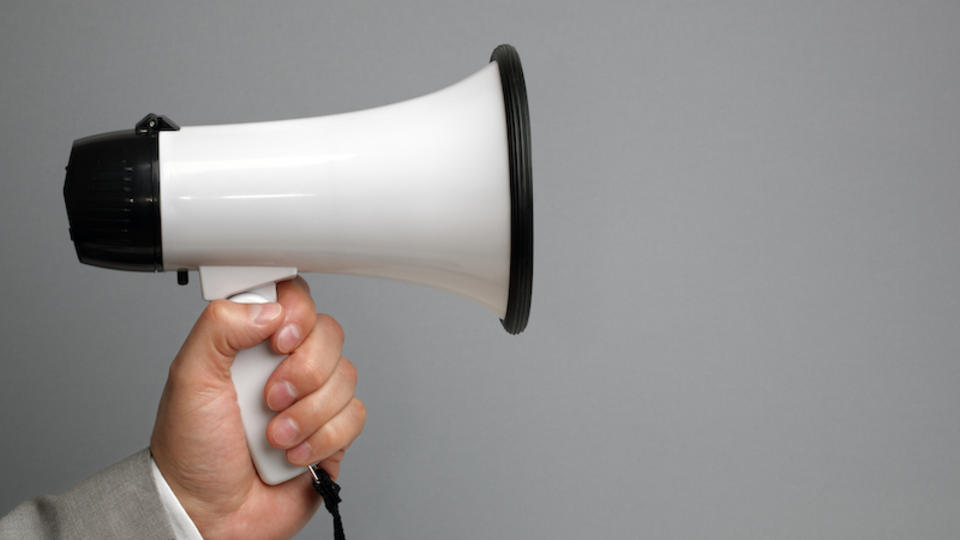
My Journey Organizing the Women in Leadership Conference
Empowering women in leadership: A journey from attendee to organizer. Discover how one MBA student's passion for gender equality led her from attending the Women in Leadership Conference (WILC) to helping organize it.
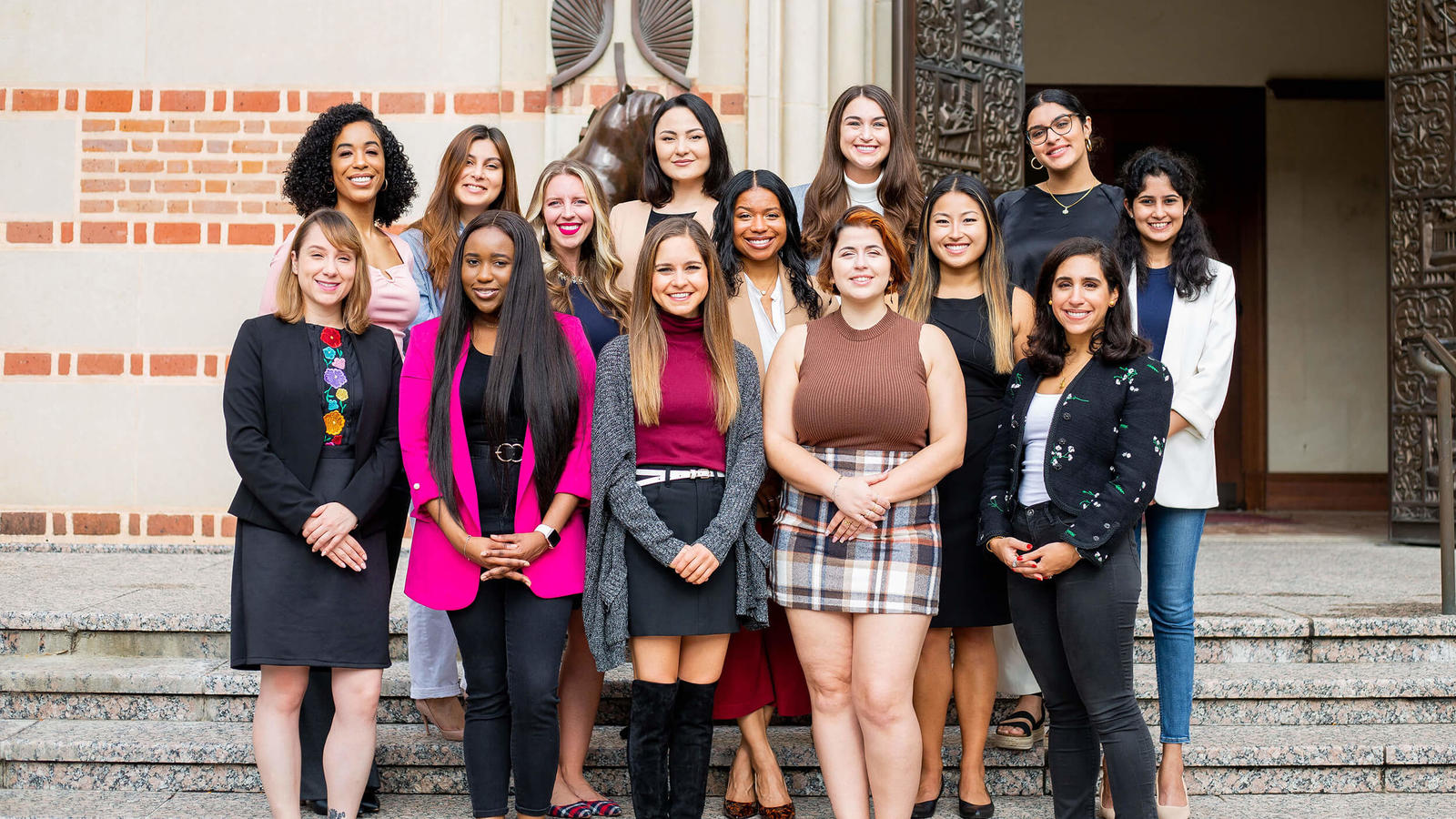
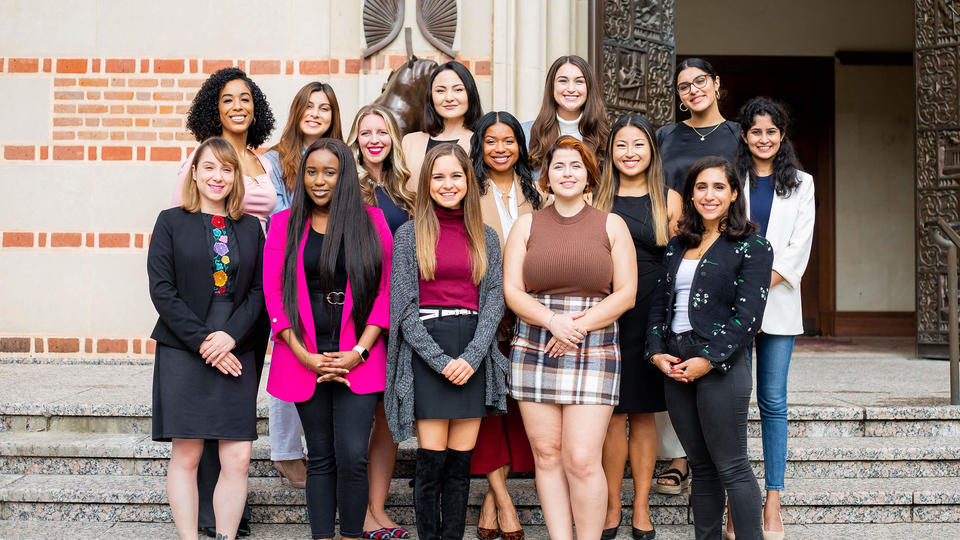
Originally posted in the Rundown in the Rice Business Magazine.
I attended my first Women in Leadership Conference (WILC) four years ago as a working professional. The next year, I submitted my MBA application to Rice Business with the goal, if admitted, to help organize WILC and inspire the next generation of female leaders.
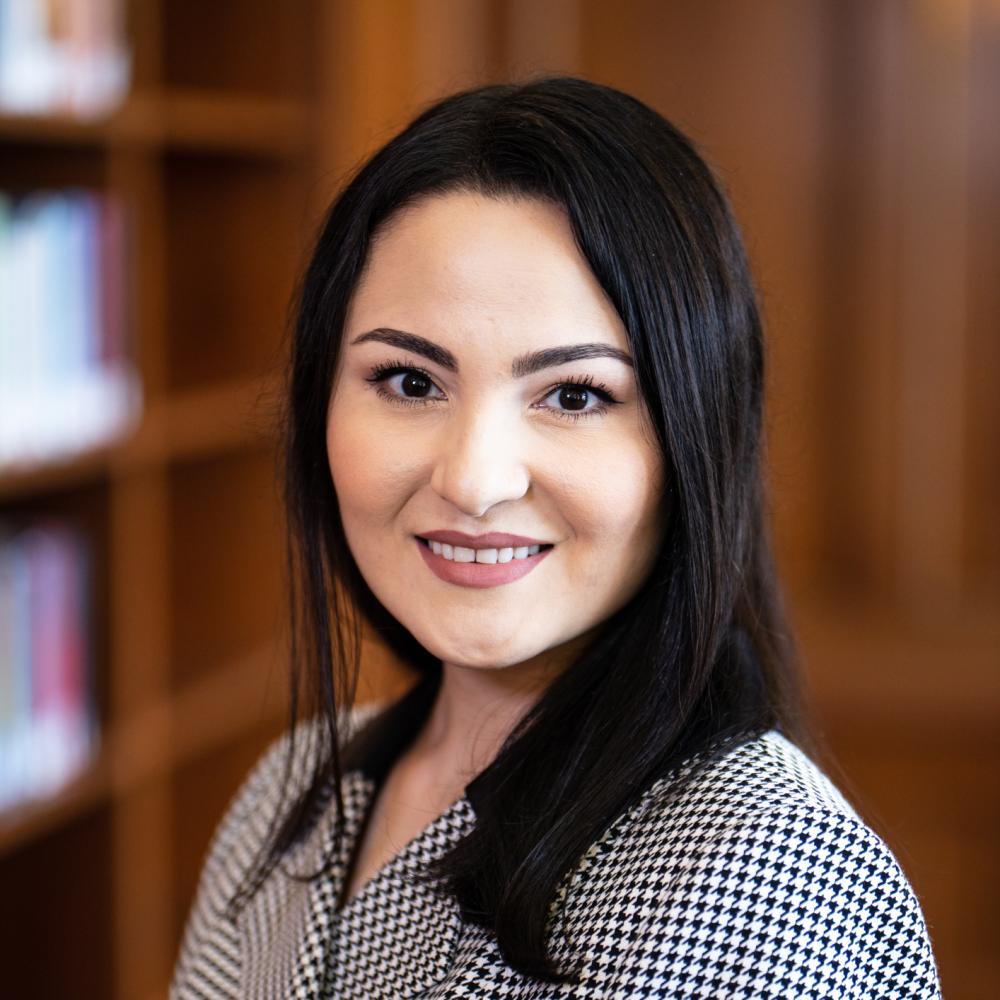
I was admitted to the Rice (Business) MBA program as a Forté Fellow in 2021 and immediately joined the executive committee for WILC 2023, tasked with marketing the conference. I organized panels and collaborated with a team of strong student leaders. Forté Foundation CEO Elissa Sangster gave the kickoff keynote speech and underscored the work that remains regarding pay gaps and gender disparities in executive roles.
What resonated with me most was Sangster’s call for us to all become vocal allies, mentors and sponsors. Advocating for women within an organization creates a culture of inclusion and equality. Women bring unique perspectives to the workplace and contribute to better decision making, which drives innovation and growth. Equal gender representation in leadership roles is critical for organizations to be competitive in the business world. Society has made progress in promoting diversity and bringing women to leadership positions, but women remain significantly underrepresented in the C-suite due to lack of advancement opportunities and the “broken rung” obstacle at the first step to management.
Being part of the planning committee for WILC 2023 has been a highlight of my MBA experience at Rice Business. This year’s theme of “Every Woman, Every Voice” highlighted the importance of sponsorship, mentorship and allyship as critical components for equality and equity in leadership. WILC 2023 sold out and achieved record attendance, surpassing more than 500 in-person attendees. The event provided a valuable opportunity to connect, build relationships, learn new skills and strategize competencies to succeed in leadership roles. Most importantly, the conference empowered its participants — including me — to aspire to greater heights in their careers and to inspire the next generation of women in leadership.



